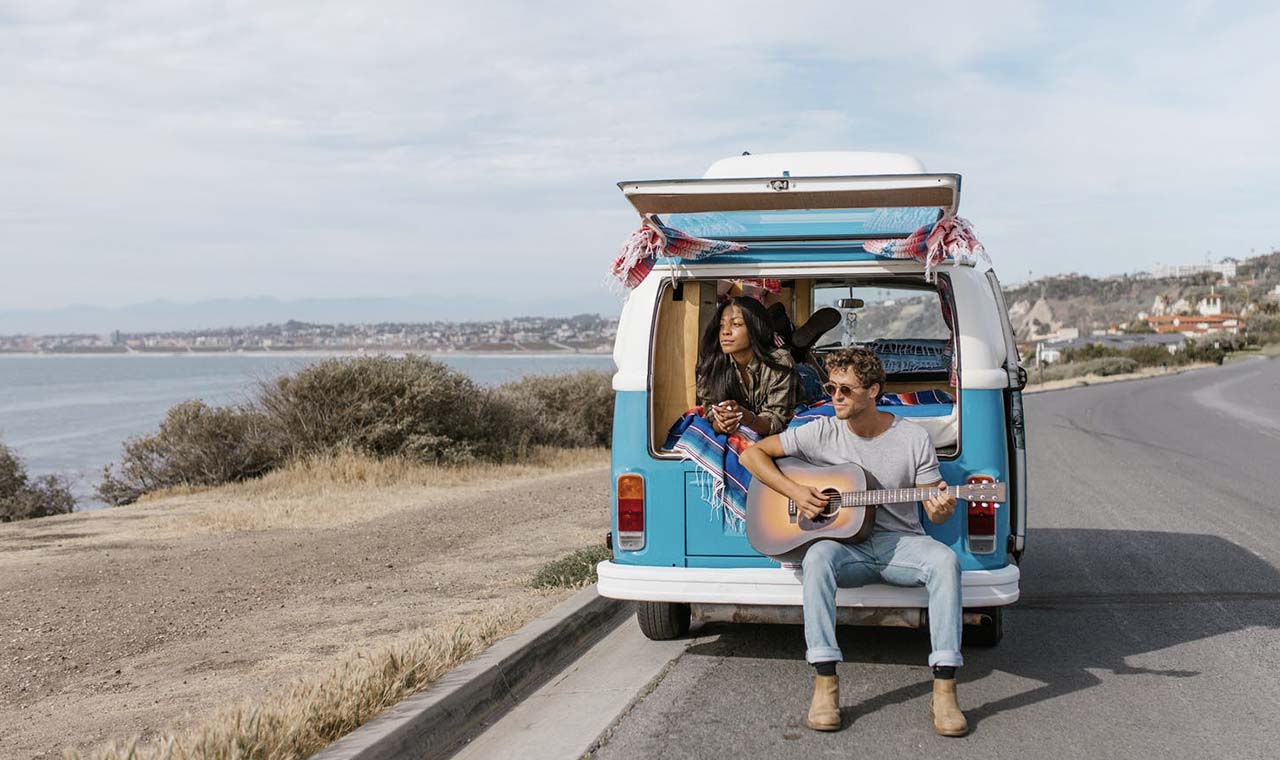
Van life is so much more than stunning vistas, cute vintage Volkswagens, and a dreamy instagram feed. Maybe you're thinking of jumping into this alternative lifestyle, but don’t quite know what to expect? If so, this is the ultimate vanlife how to guide.
We will tell you everything (and I mean everything) you need to know before making the jump into the camper van life. By the end of this article you should feel comfortable and equipped to purchase your van, convert it, find safe places to camp, set up domicile and even make a living on the road.
Vanlife is a completely different way of life than traditional house dwelling. Everything changes.
One thing that takes so many new van lifers by surprise is just how much harder simple things can be while you’re living on the road. Suddenly you have to worry about where you will get water, chasing sunshine to keep your solar charged, trying to figure out where you will be staying overnight, balancing work, finding internet, and trying to find a routine.
Life on the road is absolutely not for everyone. If you’ve been plagued with an extreme case of the travel bug however, so many of these sacrifices will be worth every single headache.
This article serves as your bible for transitioning from normal life to life on the road. Believe me when I say that planning is key. I highly recommend you bookmark this article and follow along step-by-step as we walk you through a seamless transition into ultimate freedom.
I personally thought I had planned everything out. I had traveled to Mexico in a rooftop tent, and traversed Kauai in a camper van, and even rented campers for music festivals, weekend trips and other vacations. Even still, I am finding myself with plenty to learn.
Here is every single thing I have learned, and all of the van life pros and cons.
Here we break down some of the most common terms you will hear while in the van life space.
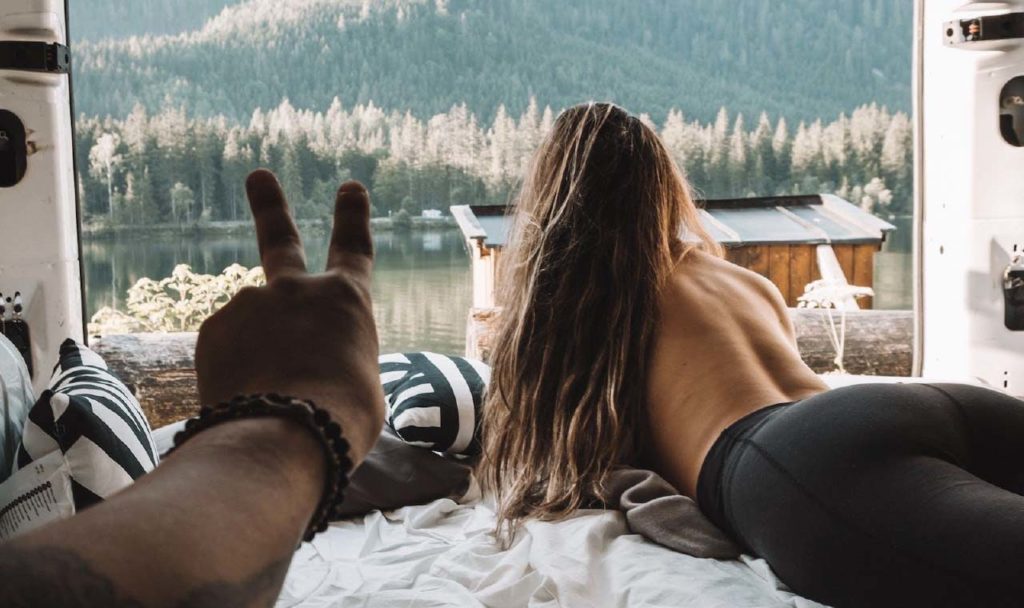
The term nomad originally meant “wandering shepard.” it referred to those with no permanent living space. Nomads don’t need a stationary place to stay. Instead they make their living on the road and find value from experiences they have and places they go.
The term vagabond is very similar to the word nomad. The term originates from the latin word vagābundus which simply means “wandering around.”
BLM simply means “bureau of land management.” It is federal land that is protected by the government and accessible to all. About 12% of all of the landmass in the United States is BLM land. This land is protected and made to be enjoyed by all.
National forest land— just like BLM land, is owned by the federal government who aims to protect the land for recreational and educational purposes.
Dispersed camping is boondocking. Any form of camping that is outside of a designated campground is technically dispersed camping. This is legal to do on BLM land and national forest land. It is essentially wild camping.
Check out exactly how to boondock legally and sustainably check out the BLM website.
A rig is a general term for someone's mobile setup. This can be a van, truck, school bus, ambulance, etc. So long as it has wheels, it is a rig.
Gray water is water that is not drinkable, but also not part of the sewage system. Any water that drains down your sink is known as gray water. Imagine dish water, toothpaste water, hand washing water, etc.
Black water is all sewage water and septic water.
Overlanding is traveling with the purpose of reaching new destinations with a focus on self-reliance. This often means having off-road capabilities and off grid gear such as solar, a fresh water tank and cooking supplies.
Any vehicle can be made into an overlanding rig, but you’ll most commonly see 4x4 vehicles such as trucks and camper vans.
Wanderlust is simply a lust for adventure. It is a need to explore and travel to new places.
Being location independent means being able to travel anywhere, anytime. You can choose to road trip across the country, or even just to the next town.

There are so many reasons more and more people are jumping into the #vanlife movement. Many of us have had our worlds rocked the last couple of years because of Covid-19, lockdowns, riots, food shortages, a crumbling economy and suffocating housing crisis.
As a society, we’ve been able to collectively ask ourselves why?
Why do we have to work a 9-5 job? Is it mandatory to go into massive debt with a home loan, car loan, school loans, etc?
There is a huge shift we are undertaking as a society toward living the lives we actually want to live instead of the life we are told we should.
Van life sure seems like the perfect solution. At least, it was (and still is) for me, and thousands of others.
Van life provides endless freedom. The freedom to travel, the freedom to escape suffocating routines, and the freedom to live life on your own schedule.
Not to mention the financial freedom.
The cost of living is exponentially increasing it seems, and wages aren’t keeping up. Living in a van means escaping often crippling rent and housing prices while still being able to save money.
Although full time van life is not for the faint of heart, many adventurers will agree that it is worth every single sacrifice.
One thing you’ll quickly notice while being on the road is the sheer number of people who will tell you “you’re living the dream!” It may not be everybody's dream, but it sure is a remarkable and rewarding lifestyle.

Look, instagram and social media do a fantastic job of presenting #vanlife in a carefree, fun and exciting light. Although there are endless incredible moments to be had, there are some terribly hard ones too.
You really start to learn a lot about how you handle stress when you’ve spent a grand fixing your van (only to realize you bought the wrong $60 knock sensor), wake up in the middle of the night with a terrible stomach ache and no bathroom around for miles, and have to change locations at 3:00am because someone pulls up next to you and freaks you out.
All of these things have happened to me in the past several months of living the camper van life. I can tell you, I’ve felt deep feelings of anxiety, depression, and loneliness.
The evening after my friend's truck got broken into and had $10,000 worth of gear stolen (while parked right next to my van), we drove outside the city and found this once-in-a-lifetime rainbow over Cape Horn. We cried like babies over the irony of the universe.
I will never forget sobbing and “shooting the bird” into the sky. Was this some cruel joke from the Universe, or was there some giant life changing lesson to be learned? The answer is yes. Yes to both. The world has a funny way of teaching you grand lessons. These lessons can cripple you if you don't keep your mindset healthy.
Full time van life is not for the faint of heart. In fact, life in general isn’t. I highly recommend you pick up the book How Life Works. It is an incredibly easy read and shows you exactly how you can shift your mindset to always see the good in every situation.

Truthfully, it is almost comical how many people will tell me “you are living my dream!”
Van life is undeniably so unique, liberating and exciting! At one point in my life I was getting ready to buy a house, get married, and hopefully have kids. Eventually my postponed wedding turned into a canceled wedding.
I know that I probably would have found plenty of happiness in homeownership and being a parent. I also knew that I was sacrificing my dream of being able to pursue a full time van life— as my partner was nowhere near as adventurous as me.
Once we split, it felt like the whole world was my oyster again. Now I get to climb mountains, jump in glistening alpine lakes, and discover the coolest craft breweries on my lunch breaks. Of course, this is up to my bosses discretion (I am totally kidding, I am my own boss, I always approve).
When you are living on the road you truly get to focus on the things you want to focus on. Ever wanted to learn how to surf? Buy a surfboard off facebook marketplace and head to the coast. Do you want to photograph a pack of wild horses in the Arizona desert? Get out there!
Van life and full-time travel are not dreams that everyone shares, and that is totally okay. If it is your dream though, you should absolutely give it a shot.
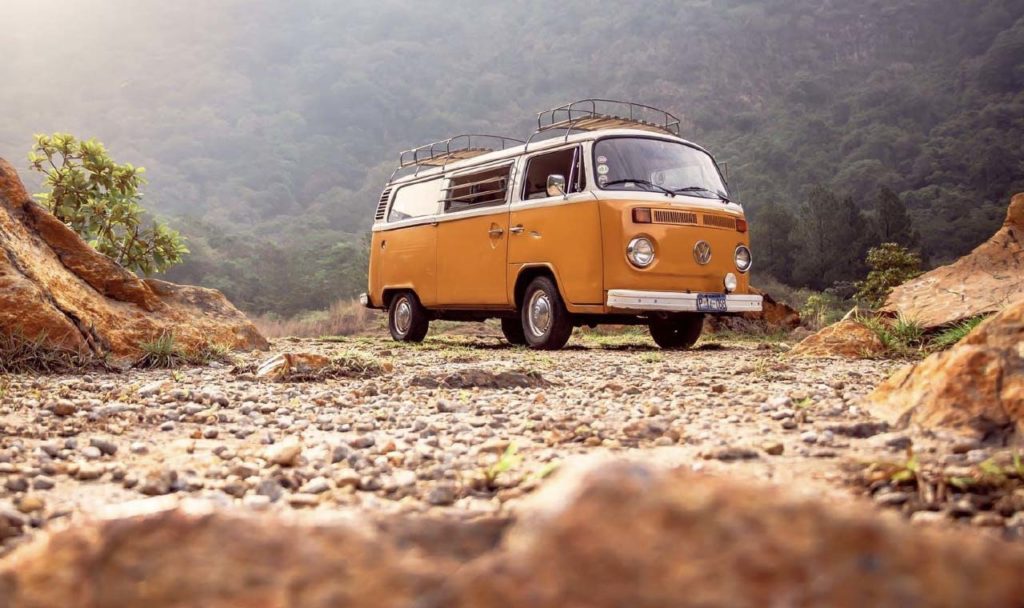
Here is an important list of questions you should ask yourself before diving into vanlife. This list is not to deter anyone from jumping in, rather, a way to help you prepare emotionally, financially, and physically for this giant life shift:
Living in a van means limited space and tight quarters. Do you get claustrophobic easily? I definitely do. I quickly found out that I needed to maximize my space by buying an awning and high quality outdoor seating.
Some Nomads decide to keep a house or bedroom they can return to after a few months. Obviously this is not feasible for everyone, but without a permanent residence things get a little more complicated. You will need to figure out where you want to set up a domicile and how you will receive important mail. We will explain everything you need to know a little later.
Traveling alone can be so liberating. Some people will travel as a couple, and some with pets. The more bodies in your rig you are looking to fit, the tighter things will be. I personally travel with my big 70 pound dog and have guests join me on the road here and there.
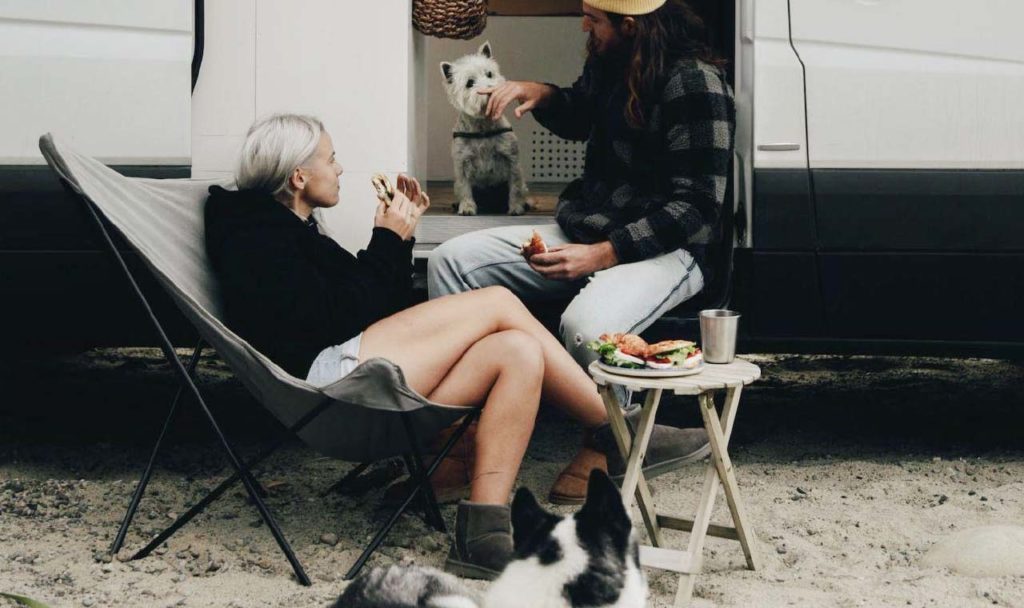
I find myself constantly having to move my dog to the side to even get out of bed. When I have another guest, only one of us can be moving around at a time. It gets tricky, so communication and patience are key.
It is so worth asking yourself what kind of locations you are wanting to visit before you buy your van. If you’re looking to travel to mostly cities and urban locations, you may want to consider making your van a little more stealthy. If you’re traveling to more rural locations, you’ll have to consider wildlife safety from bears, mountain lions, marmots etc.

If you have a job that will allow you to work remotely, then great! If you’re going to be searching for a new job or freelance work but don’t know, we will be covering exactly how to do so a little later in this blog post.
If you have a family and friend group that supports you and loves you unconditionally— great! For most of us, we will be on the receiving end of snarky remarks, and ignorant assumptions. Not everyone will understand or even accept your decision to live in a van. How you take this criticism will matter.
The best advice is to keep doing what you want to do, and hope your loved ones come around. Chances are, once they see you thrive and grow in your journey, they will be so happy for you. If not, then it's really not your problem anymore. You can’t live your life just trying to make others happy.
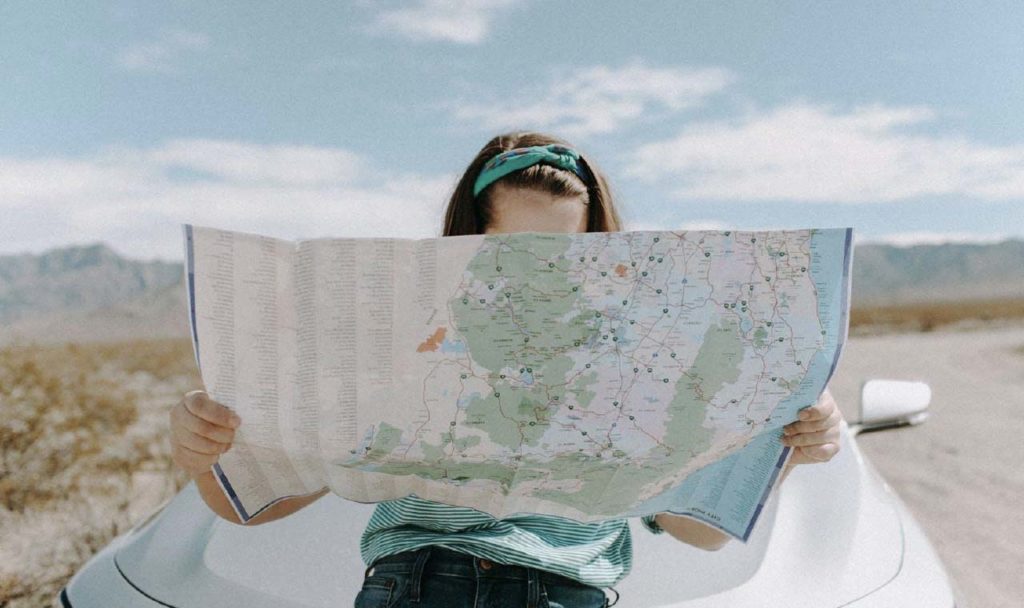
Maybe you’re used to spending your two weeks vacation time traveling, camping, seeing family, or attending events. Two weeks is not a lot of time, and unfortunately, it’s often all the time workers get in a traditional setting.
Spending a few days in an unfamiliar city is hardly enough time to get the lay of the land and it can be quite hectic trying to make the most of your van life adventures. The thing I adore most about vanlife is the ability to travel slowly.
Traveling slowly means being able to form connections with locals, frequent unique cafes, and familiarizing oneself with the inner workings of so many different cities. When you're traveling slowly, the emphasis shifts from just sightseeing to soaking up the culture, art, food and experiences like a local would.
Slow travel is also incredibly sustainable.
One really interesting trend we are seeing in the world is the concept of “flight shame.” Maybe you’ve seen the carbon emission data for private jets used by celebrities. Basically, on a worldwide level there is a significant amount of data showing just how damaging flying really is for the environment.

Here are some statistics from a this research study done about slow travel:
Slow tourism is beneficial for the individual traveling and the community they are traveling in. When you choose to live in a van, you are choosing to travel slow. This will most definitely make a difference in your own understanding of the world and bring value to the places you go.
Even in my own travels, watching the effects on tourism to smaller cities is mind-blowing. One of the most remarkable examples I've seen personally was in Forks, Washington. This town essentially carved a place on the map because of the series Twilight.
This town still only has a population of about 3,500 people, but receives thousands of tourists every year. Because of tourism this small logging community has been able to open up cute local cafes, stores, and provide tours of the city. This level of tourism has helped this town to boom and thrive.
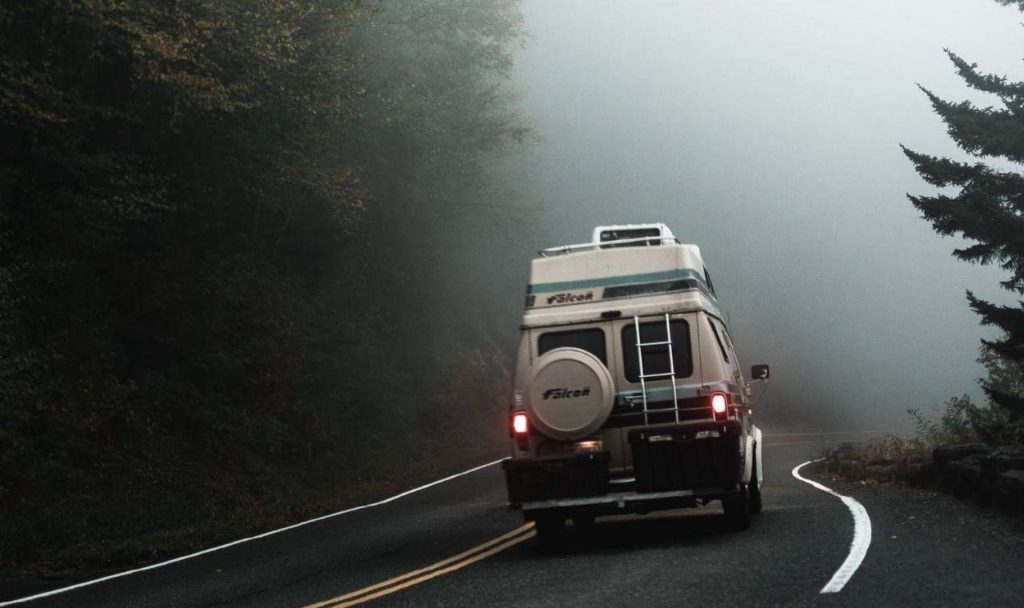
There is so much to consider when you’re looking to purchase your dream van or whatever other kind of vehicle you are planning to live in.
The top questions to consider first are:
Here is a quick overview of some of the most popular options available.
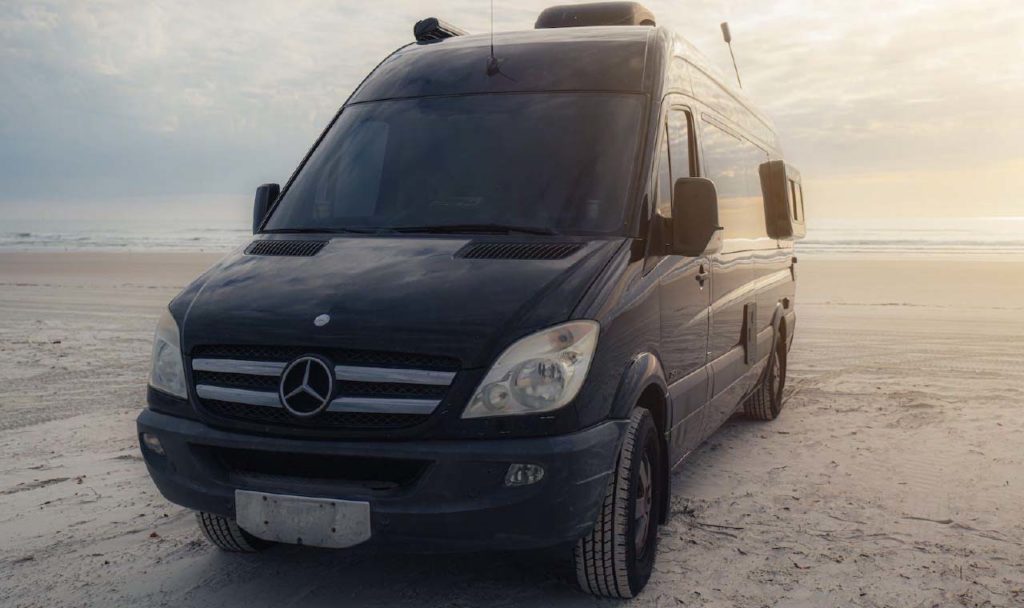
Luxury camper vans are amazing for those hoping to have all of the bells and whistles. Vans such as sprinter vans give you the flexibility of choosing options such as diesel and 4x4 capabilities, while also being able to decide what length of wheelbase best suits your needs.
Be mindful of which brand of van you purchase as foreign vehicles generally are more expensive and complicated to fix. While a Mercedes Sprinter van is the ultimate luxury van, opting for a Ford Transit or Dodge Promaster could save you money in the long run on repairs.
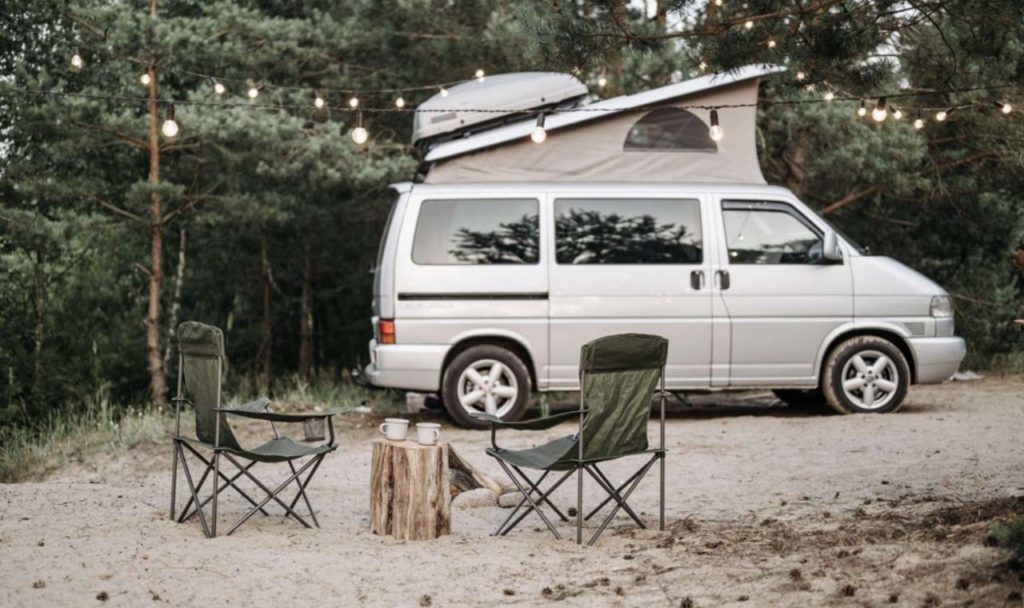
Budget campervans such as Ford Econolines and Chevy G20s are known for their reliability and affordability. They are also relatively easy to fix compared to some other foreign options. Finding parts and mechanics who specialize in your van will be fairly easy.
Another great thing about choosing an old vehicle is that they are incredibly easy to DIY fix as well. I Drive a 1995 GMC Vandura (the same engine as a Chevy G20) and work is incredibly easy to do on it. I have had several issues that I was able to resolve myself with a simple repair manual.
Of course there are trade offs such as older vehicles sometimes having questionable service records and expired warranties. However, if you’re looking for an affordable way to delve into your own van life adventures, there are so many great budget vehicles on the market.
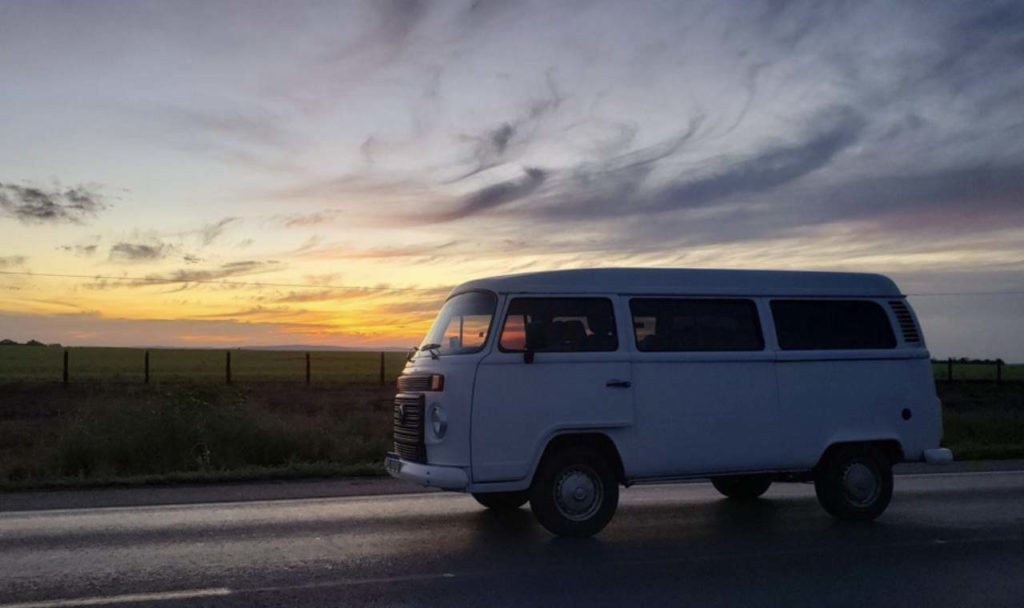
Vintage campervans are the quintessential aesthetic for van life— although not known for their practicality. This should not be a deterrent if your dream is to rock one of these vintage beauties.
The problems with classic vintage vans such as Volkswagon Vannagons and Westfalias is that they’re not spacious, they require specialty mechanics, they’re not cheap to buy, and they may require a considerable amount of work to get running reliably.
Again, it is so easy to see why so many people have their hearts set on one of these vintage classics, but it’s imperative you consider the pros and cons before you bite the bullet.

Yes, yes, this is a van life article, but no van life article would be complete without mention of a skoolie (school bus). Skoolies make incredible conversions because of their size and reliability. There are tons of school buses on the market that have been maintained incredibly well, and they’re known to last hundreds of thousands of miles.
One of the downsides of choosing a school bus for your conversion is that finding a mechanic who will work on your rig can be tough. Oftentimes they require special gear that some mechanics will not have on hand.
Another concern is finding a tow truck if things go awry. School bus owners will sometimes have to shell out $1000 or more on a simple tow. Regardless, even smaller Skoolies provide so much living space, and make fantastic homes on wheels.
If you’ve decided to include a shower and toilet in your van conversion, great! If not, here is everything you need to know about staying clean and refreshed while living on the road.
Including a bathroom is a personal and totally optional addition. Including a shower will require much more water, and take up lots of valuable space. However, being able to shower from the comfort of your own van is a serious luxury.
If you’re converting your own van build for weekend road trips, a shower may not feel necessary. However, if you’re starting van life full time, a hot shower could really elevate your experience.
Including a fixed bathroom will surely take up a decent amount of space in your van, but offers the most comfort and the ultimate privacy. Most van lifers who choose to go this route will leave their toilet in the shower area, and remove it when it is time to wash up.
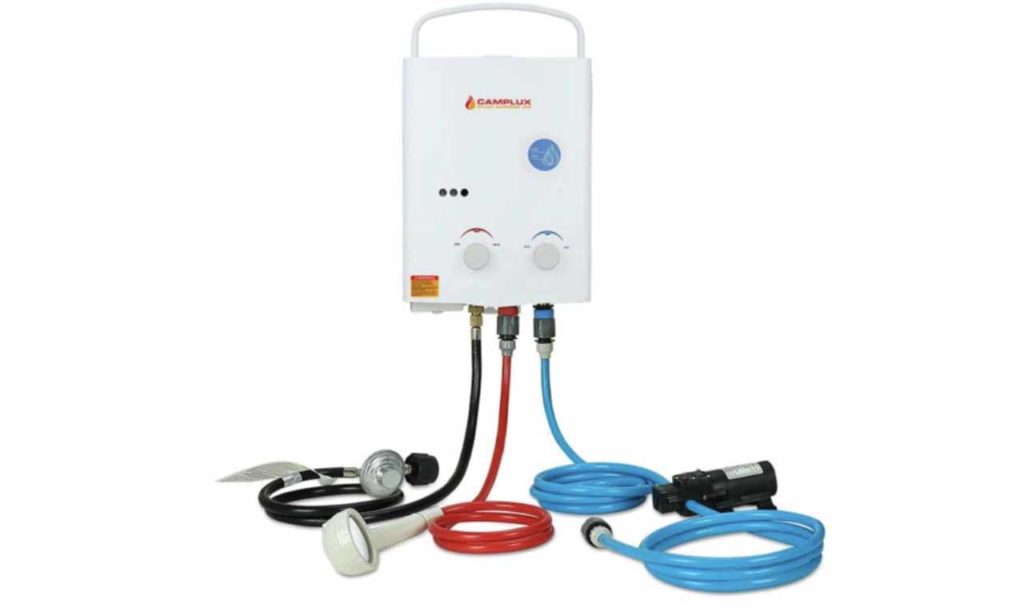
The Camplux Outdoor Shower is a very popular option for those looking for a permanent or semi-permanent shower solution. This shower hooks up to both propane and a freshwater tank to bring you a pressurized, hot shower every single time.
One of the downsides of this shower is that it does require a sometimes bulky propane tank, and access to plenty of water. If you’re looking for an option that saves on water, the Camplux shower may not be right for you.
If you’re looking for the option that most closely resembles your at home shower, you will love this option.
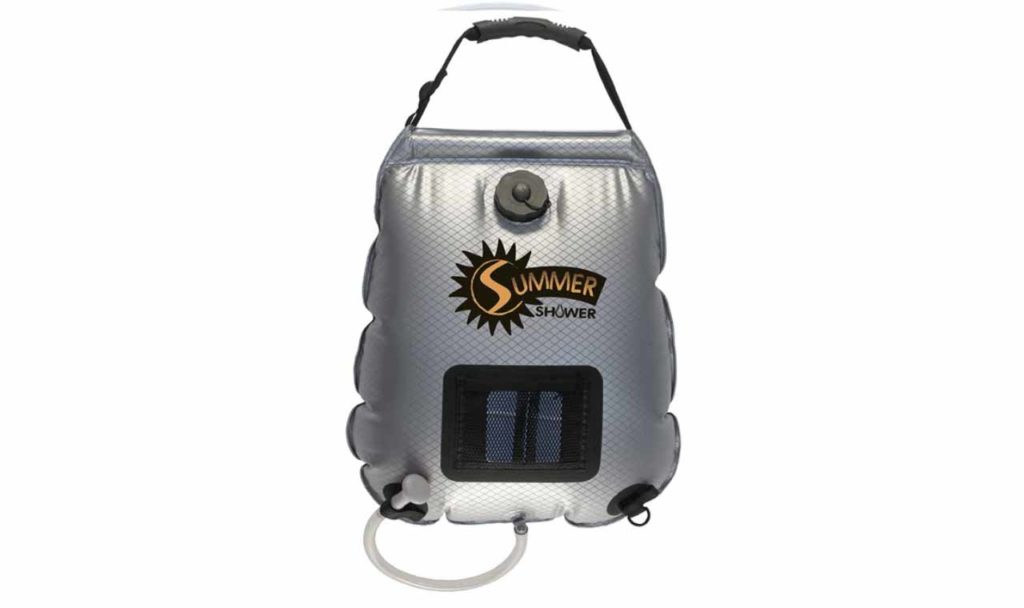
The Advanced Elements Summer Shower is a perfect solution for those hoping to save on space. This is a gravity operated shower that can be heated either by placing the bag in the sun, or by adding pre-heated water directly into the reservoir.
This shower solution is ideal for those who are looking for the most basic and inexpensive shower option they can set up outside. However, if you’re planning to visit cold weather regions, this shower may not be ideal.

The Geyser Systems Shower stands out from other shower solutions on the market in that it can bring a full shower while using less than a gallon of water. You can opt to purchase either the electrically heated model, or the manually heated model.
Either way, this option is fantastic for those who wish to go off-grid and conserve the maximum amount of water.

A pop-up bathroom is a great option if you want to save on space. These toilet options pack away when they aren’t in use and don’t require any fancy setup or intensive installation.
These are the top toilet options you can choose to include in your van.

The Nature's Head Composting Toilet is a staple for many van lifers because it is easy to use, requires very little setup and is easy to maintain. This toilet stores solids and liquids separately. The solids need to be churned after every use, and the liquids should be emptied every day or two.
The downside to this toilet is that it is relatively pricey compared to some of the other options on this list. It also requires a semi- permanent installation.
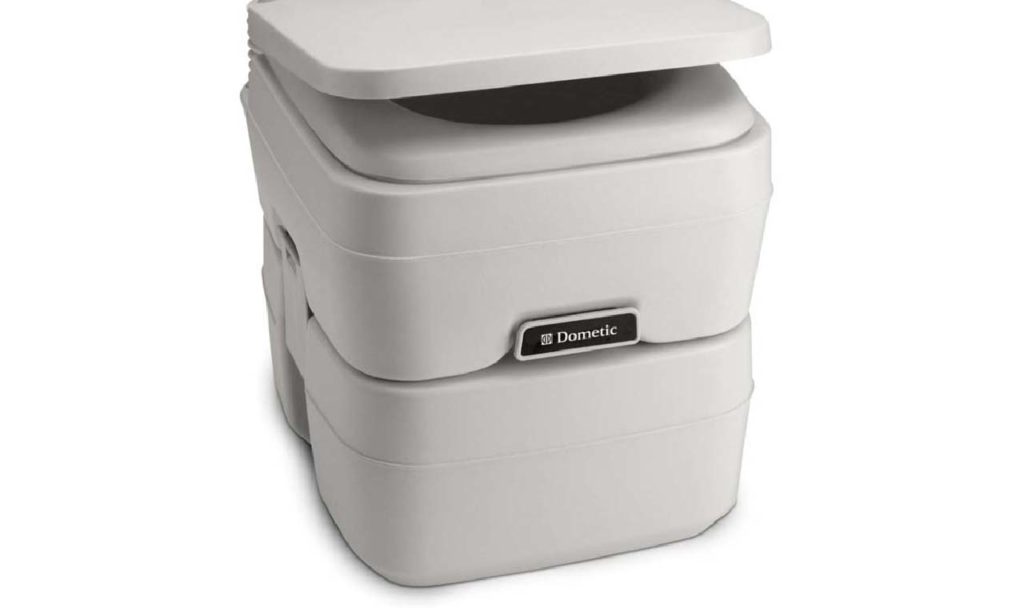
Another very popular option is the Dometic Portable Toilet. This toilet comes in both 2.5 gallons and 5 gallons, and has both a black water tank and a gray water tank. This toilet is popular because of its price and simplicity. It requires no setup and can be quickly and easily moved.

The BLIKA toilet is the simplest and smallest toilet on this list. This toilet gives you the option of either digging a hole, or using the bag method of disposing of waste. If you’re looking for something that will take up very little space, this option may be best for you.
For those unsure of whether or not they would like to include a toilet and shower in their rig, there are still plenty of ways to stay clean and use the restroom.
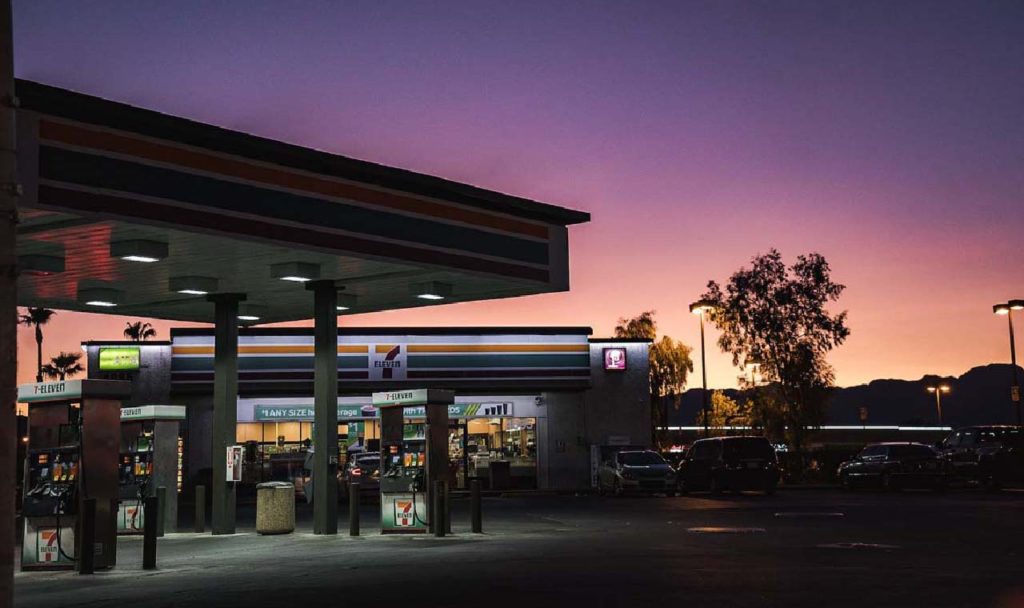
Some of the most obvious choices for where to use the toilet are at gas stations, rest stations, coffee shops and restaurants. Finding a bathroom in the middle of the night can sometimes be tough, but not impossible.
Most trailheads will provide either a pit toilet or portapotty all night long. If you’re in a hiking friendly region, it may be worthwhile to camp near a trailhead.
The most popular option for travelers to stay clean on the road is by using gym memberships, like Planet Fitness. Planet Fitness is a top choice because it is available all over the US and provides other great amenities such as tanning beds, massage chairs, red light therapy and a clean facility to get a workout in.

Other options for finding showers include rec centers, truck stops (such as Loves), and some established campgrounds.
If you’re unsure of whether you want to DIY your own van conversion, purchase a pre-made van, or pay a conversion company to convert for you— here are the pros and cons of each method.
Pre-converted vans are wonderful in that they allow you to be absolutely positive that your van is up to code while being beautifully designed. As someone who self-converted their van— It is an extraordinary amount of work.
There are a ton of companies that sell pre-converted vans with a plethora of different layouts to suit your needs. Sites such as Vanlife Trader let individuals sell their pre-converted vans. Other companies such as Vanlife Customs will sell brand new and beautifully converted vans.
This is obviously the more expensive route, but you will be able to save yourself so much time and energy.
Another great option is to bring your own van into a conversion company to have them do the work.
Companies such as Outside Van, Sportsmobile, and Vanspecialties allow you to bring in your vehicle to be converted into your dream camper. Prices range quite dramatically depending on your needs, so be sure to shop around for something within your budget.
Choosing to build a diy camper van conversion is incredibly rewarding. You get the satisfaction of knowing that you built your own home on wheels and know exactly how everything works. This is no little task, but we will break down everything you need to know to get started on your own van conversion.
Here is an overview and ultimate resource guide to gutting, planning, building and finishing your dream DIY camper van conversion. We have laid out every single thing you will need to consider to self-convert.
The first step of converting your van will be gutting it! If you’re choosing to strip your van down to just its cold metal shell— you’re in for a fun adventure.
A quick word of advice is to start every day with your van battery disconnected. This will prevent it from dying while you have your doors open, keep you from accidentally getting electrocuted, and prevent your air bags from being deployed while you remove things.
If you are removing your seats or anything on the dash, you’re running the risk of deploying your airbags. That would be the quickest and simplest way of accidentally squashing your dreams of vanlife. Any vehicle that deploys its airbags is automatically deemed totaled. So be careful.
Also, your gutting adventures will be much easier with the right tools. Before you go buying tons of expensive equipment you may not even have room for, try asking friends and family members to borrow equipment or look into rentals.
You can rent tons of different equipment from Home Depot, Lowes, AutoZone, and O'Reilly's.
There may be some tools you will want to purchase and keep with you on the road, but buying tools can also add up very quickly.
Figure out what is worth buying and what is going to be better off borrowed or rented.
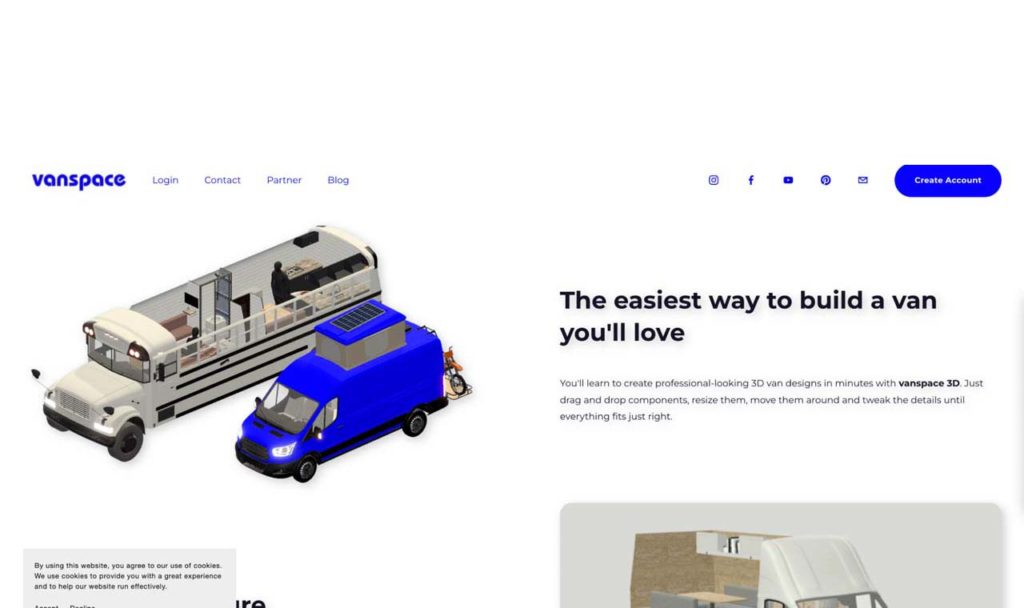
This is one of the most fun portions of building out your van (in my opinion!) I’m sure it's a similar feeling to building your own home.
Now, depending on which van you chose to convert, there are a few different ways you can go about this. I personally drive a 95 GMC Vandura with an aftermarket high top addition. My van is very uniquely shaped, and has tons of curves and angles.
If you purchased a relatively common van such as a Promaster, Transit, or Econoline or Sprinter, there are several different layout planning apps and software you can use to design your layout.
Even if you have a unique setup like me, you can often submit your dimensions and plan from there. I found this to be much too tedious for my liking, but may van lifers adore the available software.
Some of the best software on the market is through Vanspace3d, SketchUp, and Tinkercad 3D. Membership options vary, and all do cost money. However, being able to see a 3D model of your vans layout is a fantastic way to ensure you are designing your ideal rolling home.
I found success by marking out my desired layout with painters tape on the floor and walls. This allowed me to visualize the space.
I am traveling with a big dog, so ensuring I had plenty of floor space for him to sleep was mandatory. If you're traveling with another person it’ll probably be helpful to tape things out and see what it is like to navigate around the space together.
There are some other things that you should think about as well:
While planning your layout, be sure to watch plenty of videos and talk to people who have a converted vehicle or live in their own vans. Figuring out exactly what you want in a conversion is a difficult task.
I personally did months of research before starting my diy camper van conversion and there are still plenty of things I wish I would have done differently with my rig. For instance, I heard so many stories of people who absolutely loathe converting their bed everyday. I decided to go with a stationary bed because of this, and I totally regret it.
I find myself spending about 15 minutes every day removing all of my bedding to shake the inevitable dirt and leaves out (thanks to my pup.) It would have been just as much work to convert my bed everyday, and that would have provided me with a great workstation.
Another very important step to planning your layout is figuring out where you would like your wires to go. For now, just figure out where you would like to place your outlets, where you’d like your light switches and solar charge controller.

There is a remarkably small amount of framework information on the internet. This left me entirely confused when it came to planning my framework. Luckily, I could consult with a professional carpenter to ask all of the important questions.
The purpose of the framework is to provide anchor points to connect your walls, structure for your electrical outlets, and sturdy points to anchor things such as cabinets and your bed. Before starting your framework it is important to decide exactly what you’d like your walls to be made out of.
Choosing luan plywood walls over tongue and groove planks, for instance, will dramatically change how you frame your camper van.
It is also important that your framework lines up with where you plan to anchor things such as yoru cabinets, bed, bathroom, etc. You’ll want to be completely sure you know where you’d like these things before you jump in.
The same principles apply for your ceiling. You'll have to plan out your lighting and decide exactly what material you’d like your ceiling to be made out of before you start your framework.
Insulation is hands down the most controversial part of any camper van conversion. If you asked a handful of professionals what the correct way to insulate your camper van is, you may receive all completely different answers. Even worse, they would most likely argue that other ways are incorrect and ineffective.
You’ll have to figure out what method feels the most correct for your van conversion. Here is all the information you need to decide what method is best for you.
Insulation is rated by R-value. R-value is the grading system used to measure the effectiveness of the insulation material. The higher the R-value the more effective insulation will be.
There are a few options you can choose from when picking the right insulation method for you. Here are a few of the most common choices:
Probably the only thing anyone can agree on as far as insulation is concerned is that 3m thinsulate is one of the most effective and safest options for insulation on the market. The downside— it’s incredibly pricey.
Thinsulate is non-toxic, safe to touch, and has an r-value of 5.2. 3m Thinsulate also acts as an acoustic barrier and has sound deadening properties.
Havelock wool is another great insulation option because it manages moisture well and has an r-value of 3.6 per inch. It is also non-toxic and hydrophobic.
Foam board insulation is a great choice for flooring as it is fairly easy to work with, will keep your floor boards from squeaking, and has a relatively high r-value per inch of material.
Fiberglass is not recommended for camper van insulation since it is toxic, contains formaldehyde and doesn't have as high of an r-value as some of the other safer options on this list. Fiberglass is a fairly inexpensive option however.
If you do choose to install fiberglass in your diy camper van conversion, be sure to wear proper protective gear such as eyewear, a face mask and clothes that cover your skin.
Reflectix does a great job bouncing and reflecting heat outward. This means it makes a great window covering, but doesn’t provide much protection when placed on walls.
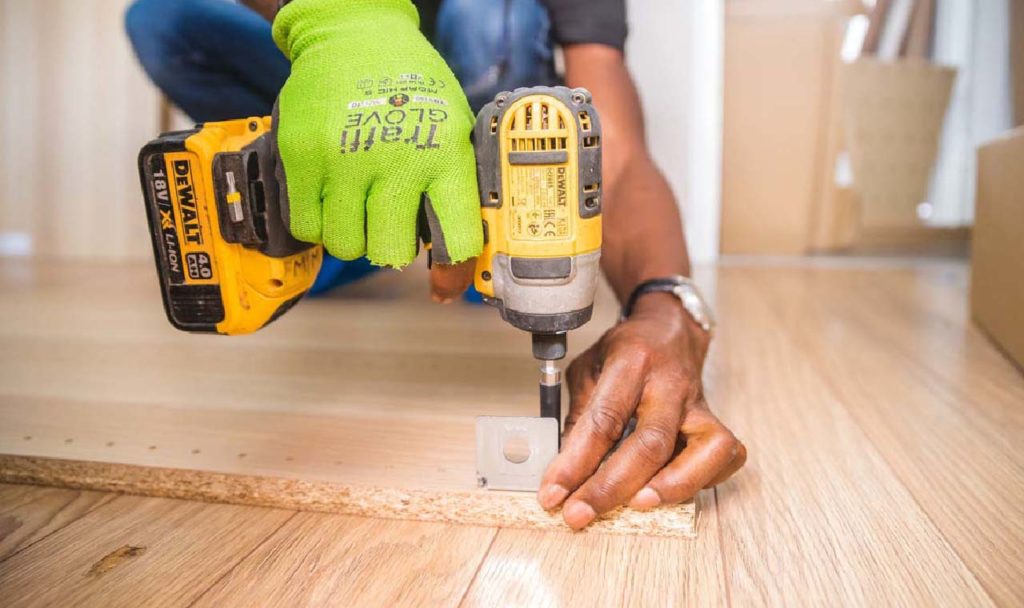
Subflooring in your van will be placed over your insulation and should be at least ½ inch thick plywood. Once your floor is framed and insulated, you’ll want to lay your subfloor. This can be screwed directly into your framework. Also, it is commonly accepted that adding a vapor barrier is not necessary in your camper van conversion.
Also, depending on what flooring you decide to install in your camper van, you may or may not need to purchase a separate underlayment. Underlayment is a soft layer that goes under your finished flooring, but over your subfloor to prevent squeaking, help with sound absorption and extend the life of your flooring.
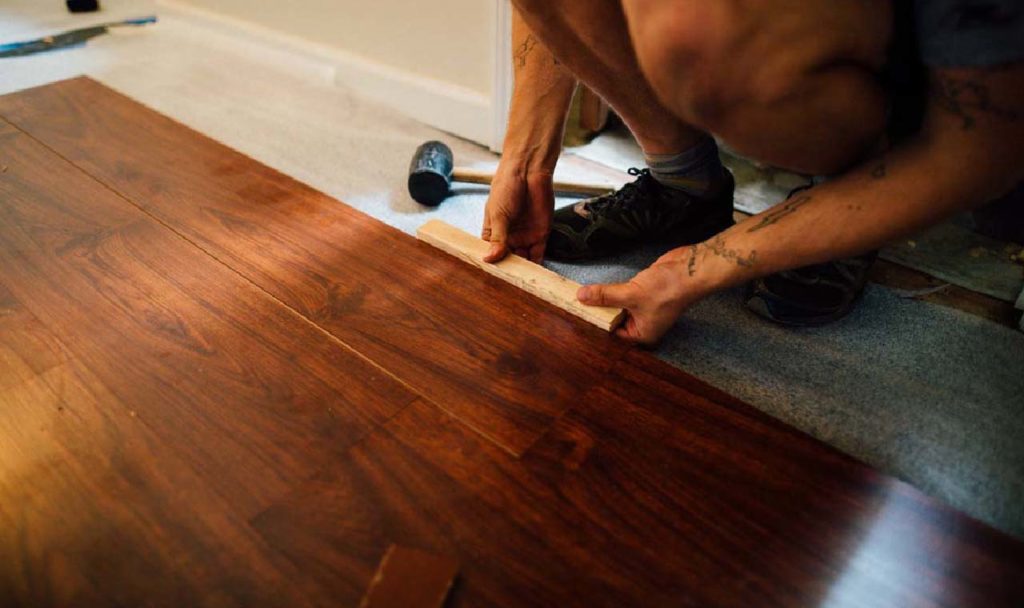
The number one thing I learned when installing my flooring is to not cheap. A high quality flooring will be able to withstand all the backcountry roads, moisture, and weather conditions you’ll face.
Some other van lifers will opt to install peel and stick flooring, however, this kind of flooring is not meant to withstand dramatic temperature fluctuations. This kind of flooring will be continuously expanding and contracting, and ultimately will not last as long as it should.
It is recommended that you choose a flooring that is a high quality laminate tongue and groove system. Laminate is fantastic at repelling moisture and is lightweight enough to not affect your suspension or gas mileage. These panels can withstand all of the wear and tear you will put on them while traveling.
Once you have your van framing complete, you’re ready to start pre-wiring. Pre-wiring must be done before your van walls and ceiling go up. You’ll now have to make final decisions on what you’d like to run off AC (alternating current) power and what you’d like to run off DC (direct current) power.
Not sure the difference between AC and DC power? Here is a handy guide.
It is important that you figure out exactly where you want your wires to go, and exactly how many you will need to run before your walls go up. If you have any inkling at all that you may want to add more to your electrical system later, you’ll definitely want to consider running extra wires that can be accessed behind your walls.
Pro Tip: One your pre-wiring is finished, it is a great idea to make a wiring guide. Meticulously draw up exactly where your wires live and the corresponding measurements. When you inevitably need to drill into your walls, you’ll be able to figure out exactly how to avoid ruining your electrical system.
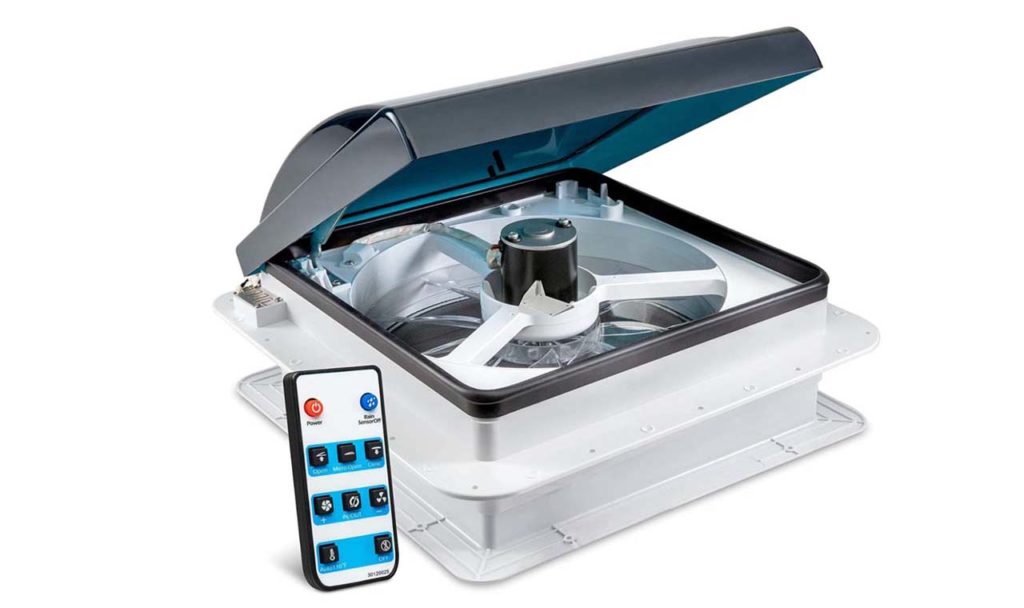
Installing a vent fan is actually a remarkably simple thing to do, and is a van life cost you don’t want to skip! This will be imperative for cooling your camper van, keeping moisture out and helping you air out food smells.
When shopping for vent fans, keep in mind key features such as whether or not it will keep rain out, the ability to draw air in and out, and whether it is remote controlled. Truly, you don’t need any fancy extra features, just a basic vent fan will do the trick. Some of the other bells and whistles are nice to have though.
Some of the best fans on the market are:
The Maxxair 5100K is a wonderful vent fan because of its a 10 speed motor, built in thermostat for temperature control, and unique design that keeps rain out even during a downpour.
The Dometic 1250 fan is wonderful because of its price point, ease of use and versatility. If you’re looking for an affordable vent fan that will get the job done, this vent fan will not disappoint.
The Maxxair 7500K vent fan is a step up from the Maxxair 5100K. It comes with a slightly higher price point but does also include a remote control.
To install your fan you'll want to first figure out where you’d like it in your camper van. Some van lifers opt to install two fans— one over the kitchen, and another over the bed. This is entirely up to you. Just be mindful that you will need to have enough space for your solar panels. Make sure you measure everything out precisely.
Next, create a template based on the specifications of your fan. Most vent fans require you to cut a 14x14 hole in your ceiling. It is imperative that you do not trace your fans base on to the roof. This is incorrect and your fan will not fit properly.
Instead, make a template out of cardboard or paper that is exactly the dimensions specified in your vent fan manual. Trace this template out and drill pilot holes into the four corners of your outline.
Pilot holes are used as a way to get your blade into the ceiling accurately and easily. Once you have your holes, you will be ready to saw out your opening.
Once you get your fan in, it is imperative that you use a high quality sealant to keep the moisture out. Most fans will want you to use butyl tape to secure your fan down, then sikaflex to prevent moisture from getting through.
Here is a great instructional video for how to install a vent fan.
If your frame work and pre-wiring are done correctly, installing your walls and ceiling should be a fairly simple task. You’ll ideally want to use a nail gun for this. Don’t be too afraid of making holes in your walls, as these are fairly easy to fix with Quikwood.
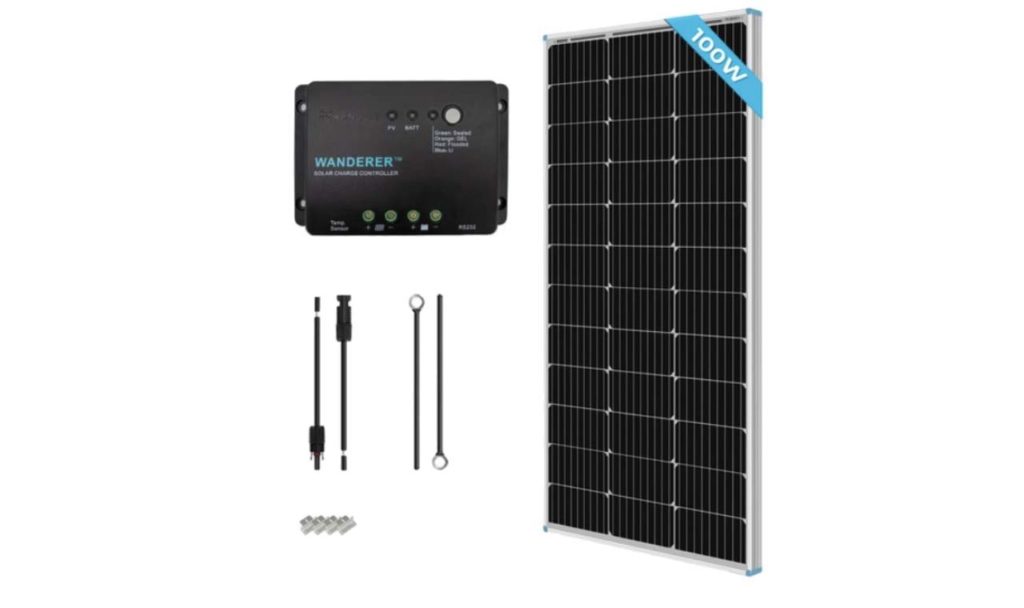
Hands down, the most popular solar kits are from Renogy, however there are tons of wonderful alternatives on the market from brands such as BougeRV.
Solar installation may sound complicated at first glance, however there are plenty of resources available to ensure you are doing everything correctly.
Depending on which solar system you choose to install, be sure to follow the directions provided. If you’re still unsure of how much solar you need, there are plenty of handy calculators— like this one.
Also, be sure to carefully decide on which battery you choose to install. Lithium batteries are the highest quality batteries on the market. Lithium batteries are able to be drained much lower than AGM batteries, and can also withstand more recharge cycles.
Keeping your solar batteries healthy is incredibly important. Always remember that AGM batteries should never fall below 50% charge, while Lithium batteries can withstand being drained to 20% before their lifespan is compromised.
Lithium batteries will cost significantly more than AGM batteries, but you ultimately do get what you pay for.
If you can’t decide which battery to choose, you can opt for a hybrid battery like this one.

The main rule to remember when wiring things such as your lighting and vent fan is that you will want to connect negative wires to negative wires and positive wires to positive wires. Be sure that all wiring is done while there is no current running through them.
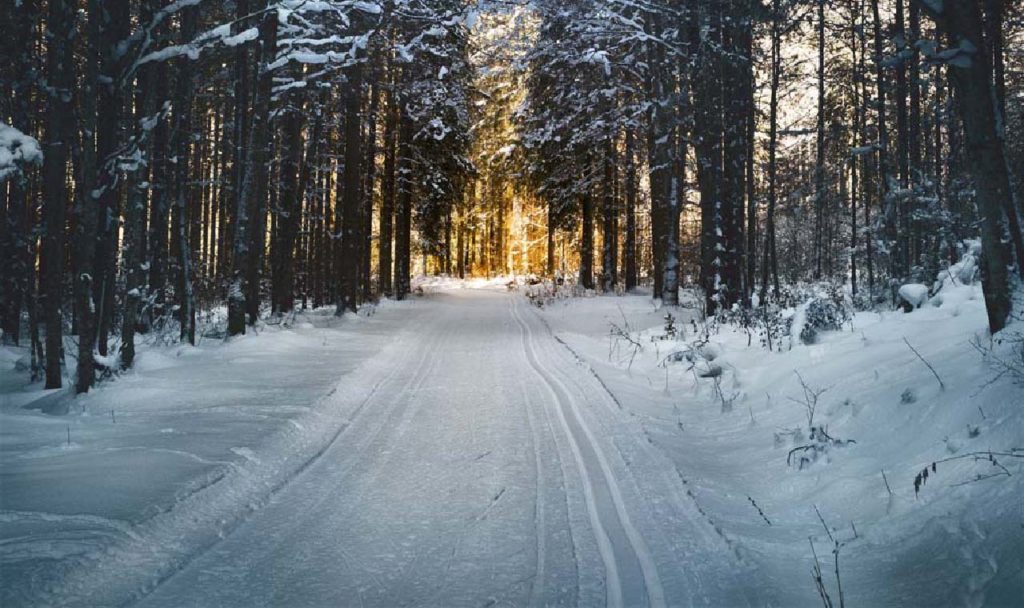
If you’re planning to pursue any winter van life adventure, you may want to consider installing a heater. The easiest way to go about adding a heater would be to run one off of your 12 volt system. This will however draw quite a lot of power.
Another popular and fairly easy to install option is to add a diesel heater. These heaters are highly effective at keeping your camper van warm in even the toughest conditions. They do require some installation though.
To install a diesel heater you will first be required to find a place to ventilate it. This will require cutting a hole from the inside to the outside of the van.
Adding a diesel heater is quite inexpensive and can make a great addition to any van you wish to bring into colder climates.
Installing plumbing in your van does not need to be difficult. Using items such as Pex Pipes give you plenty of versatility and customizability. Using proper piping will ensure your system stays leak free.
When installing a sink system there are a few routes you can take:
Hand and foot pumps are incredibly inexpensive and the easiest to install. They can be tedious to use, but are incredibly reliable.
Installing an electric pump like the My Vision Water Pump install in seconds and are rechargeable. One of the downsides to using this method is that you will have to stay on top of keeping your faucet recharged.
A traditional water pump like the Shurflo Freshwater Pump will require a bit more elbow grease to install, but this method will provide a kitchen experience similar to what you’re used to at home.
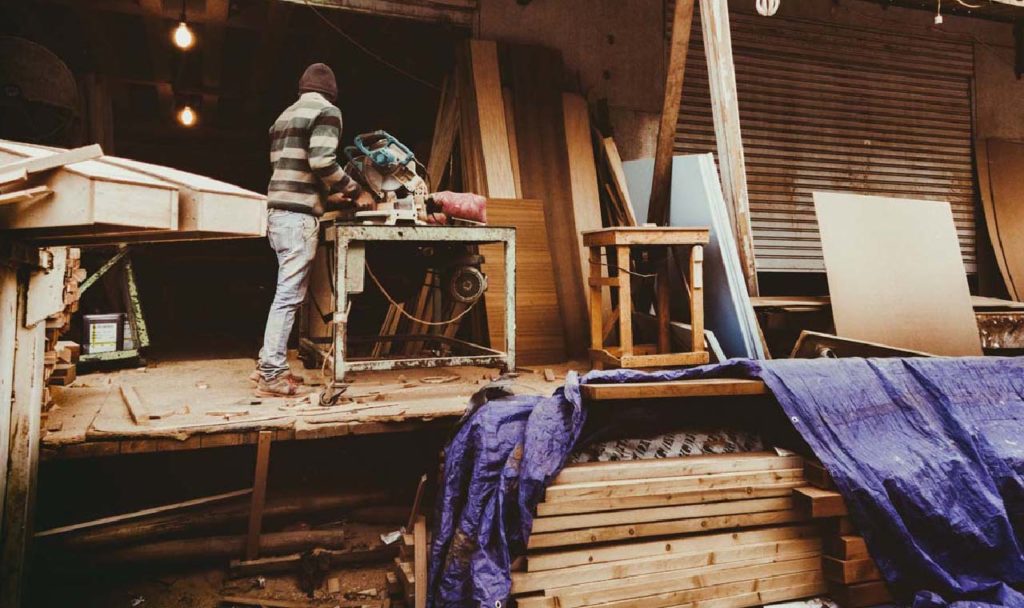
There are several ways to go about adding a bed and cabinets. The easiest thing to do would be to buy pre-made components from ikea, lowes or home depot that fit the dimensions you are looking for.
Another great option is to thrift pieces you may want to use. Restoring old furniture is generally much easier to do than building furniture from scratch. This can also be a great way to save money. Often times by changing hardware, sanding and painting, you can completely change the look of your furniture,
Keep your eyes out for pieces that may work in thrift stores, yard sales, estate sales and other sites such as craigslist. Keep your measurements handy as you shop and always remember to bring a tape measure.
The last option would be to build your own bed frame and kitchen. Building furniture from scratch can be quite an intensive process, so be sure you have the time and drive before diving into a project like this. WIth some elbow grease, you will absolutely be capable of building the furniture of your dreams.

Finally you’re ready to add the final touches to your camper van to make it feel like home. Always opt for paint options that can easily be cleaned, and are suitable for indoor and outdoor conditions. Don’t forget to caulk your nooks and crannies as well.
When you choose to live in your camper van full time you are bringing your home with you everywhere you go. This means, you are putting your home at risk everywhere you go. Being able to add extra security will surely help you sleep better at night.
Some of the best ways to add extra security to your van is:
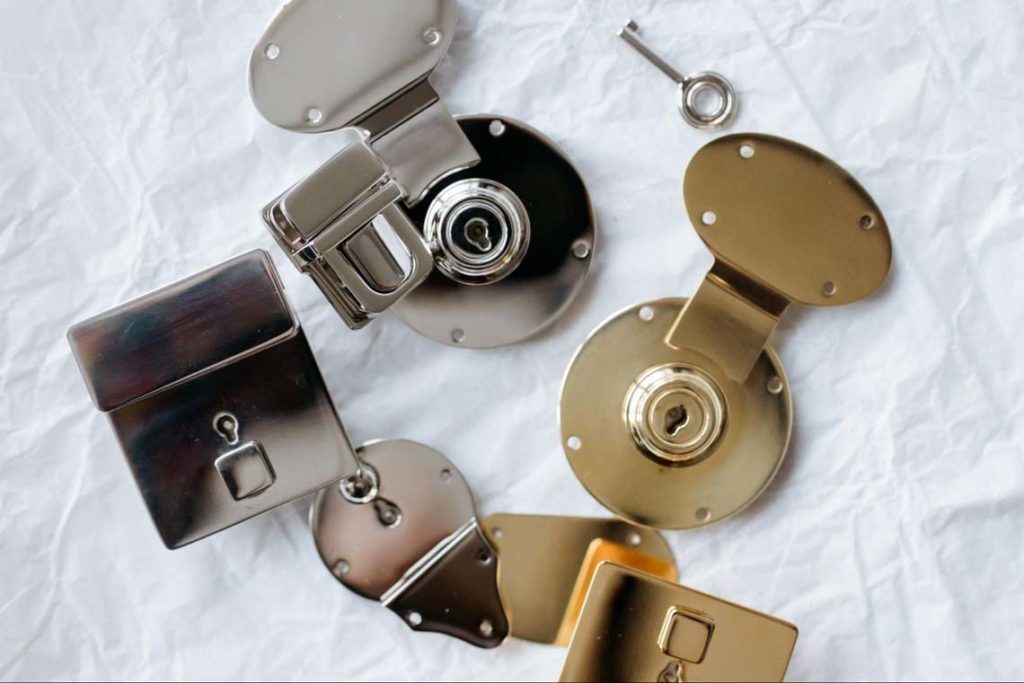
Any novice criminal will probably know exactly how to break into your camper van. There are tons of different external locking systems you can add to your van to bring you extra peace of mind.
A dash cam can save you in the event of a collision, but it could also help you in the event of a break in.
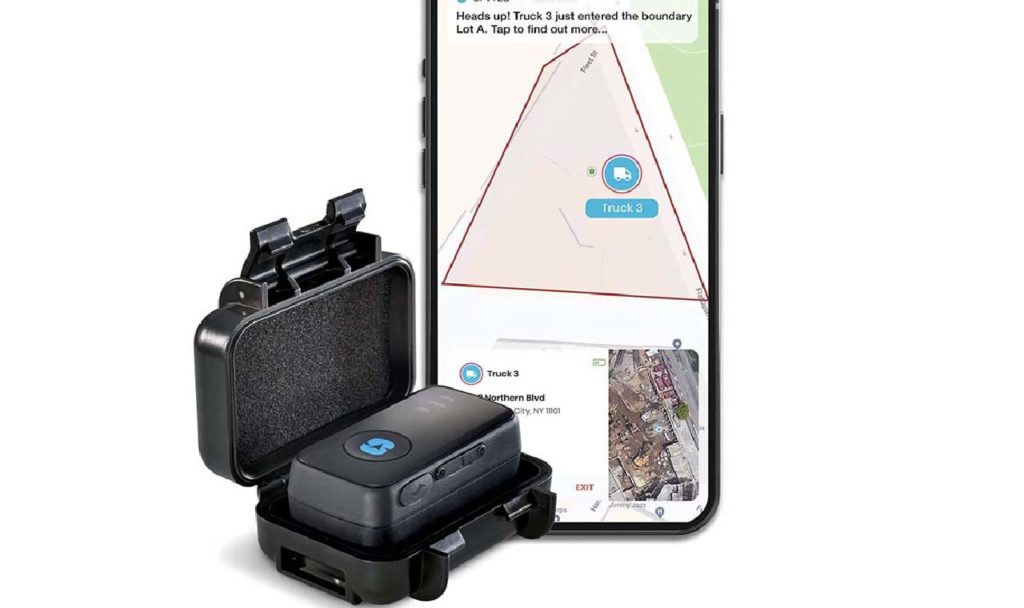
Vehicle trackers aren’t just for overprotective parents and suspicious partners. They are very inexpensive, simple to install and can provide endless peace of mind when you have to leave your vehicle unattended.
Trackers like Spytec can be installed in minutes and will send real time updates directly on your phone about your vehicle's location.
Probably the cheapest way to add security to your camper van is by adding security stickers like these. Letting potential criminals know that your vehicle is secure can be a highly effective deterrent.
Similarly, try to avoid adding stickers to your camper van that identify things about you.
Never be caught in the face of an emergency without a roadside emergency kit. This will give you peace of mind in the event of an emergency.

No van build is complete without the addition of a fruit hammock. All jokes aside, a fruit hammock will give you a place to keep your produce without having to worry about finding your missing avocado months later under your passenger seat.
From someone who had experience with a faulty propane stove in my camper van— do not skip keeping a fire extinguisher in your van. There are countless stories of van lifers who had to watch their home go down in flames. Always be prepared to handle the unthinkable.
I’ll admit that my smoke detector is mostly really good at telling me when my toast is finished in the morning, however, this can truly be a life saving addition to your camper van build and should not be skipped.

If you plan on traveling to remote locations, it is imperative you travel with a first aid kit. Also, if you travel with a pet, consider also purchasing a pet specific first aid kit.
Traveling with a power station is a wonderful backup plan that’ll only run you a few hundred dollars.
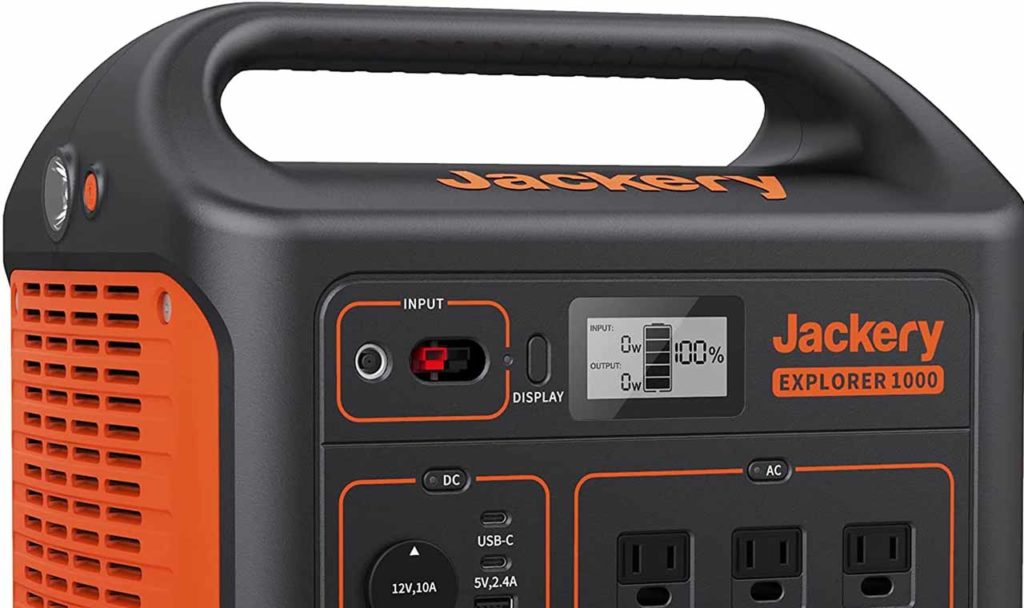
As someone who has experienced the woes of breaking my power inverter, I was beyond thankful to have a power station like my Jackery 1000 I could rely on while I waited for my new inverter to arrive in the mail. Which by the way is what EVERYONE seems to get. I at first thought it's that it's was due to so many other bloggers copying each other. However, I will honestly say after using it that it's great.
Not only that, but it's great for being able to work outside, plug in outdoor lighting and even run my projector for movie nights outdoors.
It can be tough sometimes to find water fill ups. Some towns don’t have any, and there have been plenty of outdoor water filling stations that I just simply didn’t trust. Don’t be caught without water.
A water filter is a very inexpensive way of ensuring you always have safe drinking water handy.
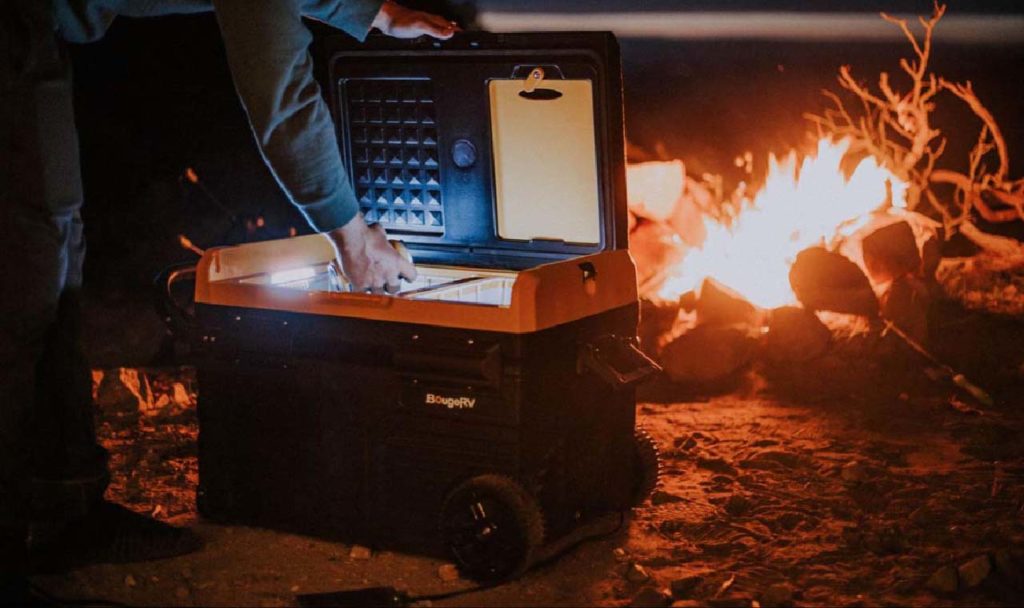
Some vanlfiers will opt to use a cooler with ice. That is totally fine. There are some incredible fridges on the market that will ensure you don’t have to deal with soggy, luke warm, butter ever again. The best part? They don't even require that much power.
I love my 48 quart 12 volt Portable Refrigerator from BougeRV.
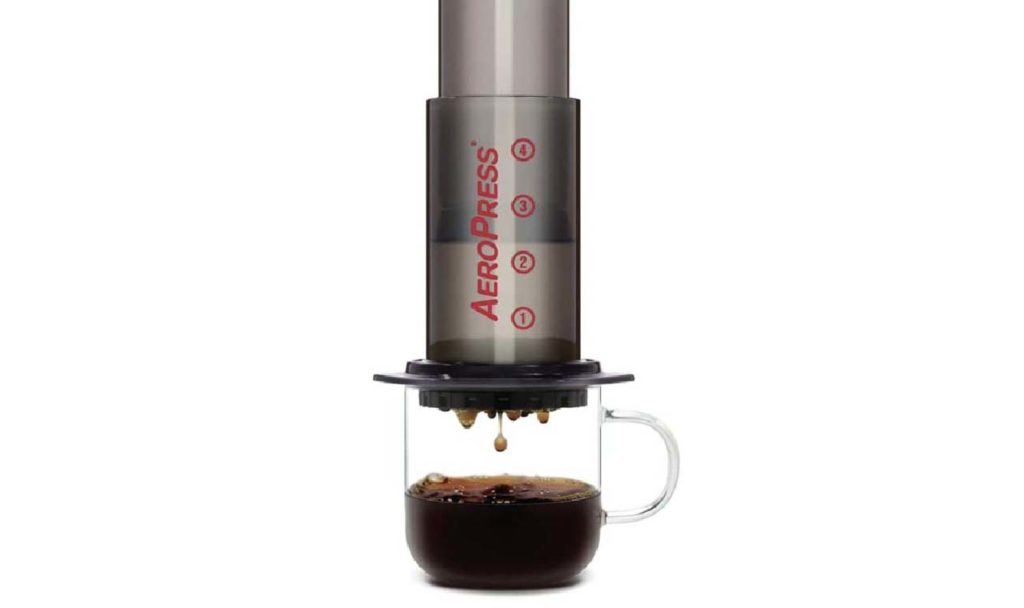
I am a devout coffee drinker and am very picky about my coffee brewing methods. My favorite ways to brew the perfect cup of joe on the road are my aeropress, french press, and Moka pot.
Having an electric kettle is such a game changer. I use this collapsable water kettle for all of my tea, coffee and instant bone broth. I am a beverage enthusiast, and this makes my life so much easier. Having a kettle that collapses is a great way to save on storage space.
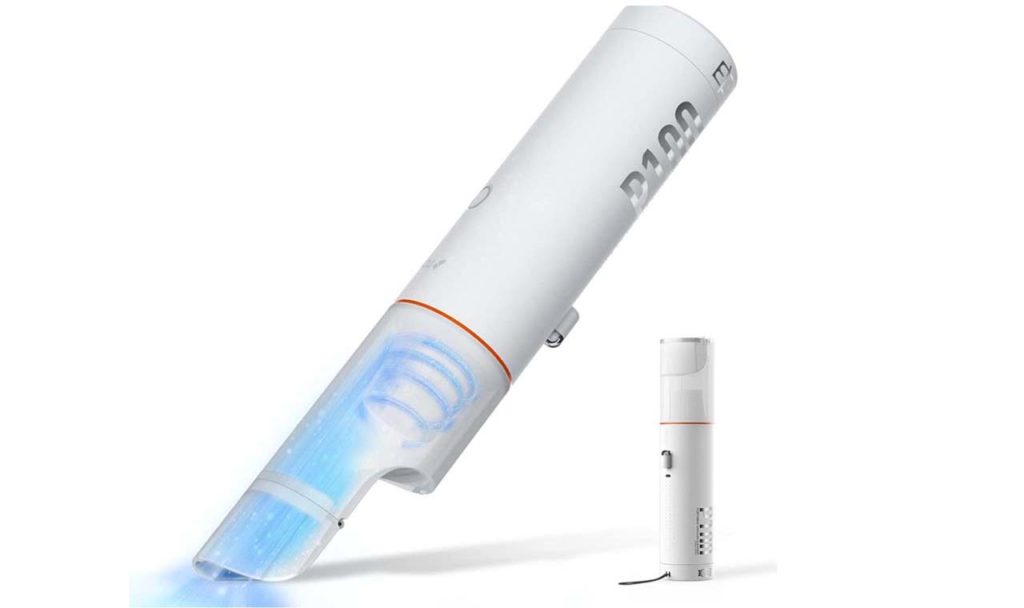
Having a handheld vacuum in my van is an absolute must, especially since I travel with a very fluffy, big dog. My carpet seats especially get a thick layer of fur on them in the blink of an eye. Being able to break out my vacuum means I not only get to keep the dog fur in check, but I also get to keep the tight spaces of my home on wheels clean.
Having good cell phone service doesn’t seem like that big of a deal, until It is. Just a few months ago I found myself broken down after being off the grid, deep in a forest with terrible cell phone service.
We were able to use this cell phone booster to research the engine codes we were receiving and look for parts shops in the next town over. This was a complete life savor.
Having a good shovel will probably be one of the most versatile tools you'll keep in your van. We have used ours to get ourselves unstuck from the sand in Sand Hollow, to dig a fantastic hole for our beach bonfire in Cannon Beach, and even for the occasional bathroom emergency while deep in the wilderness.
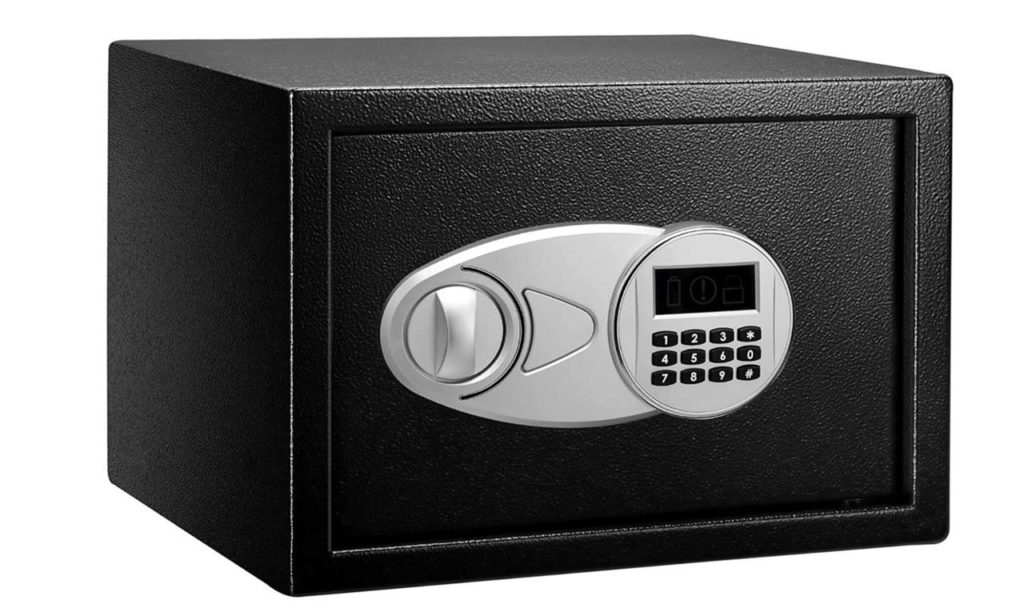
When you live in your van, you will most likely be holding onto dozens of valuable documents, electronics, spare keys, and personal information. Don’t run the risk of losing all of your important things. Having a safe will bring you peace of mind. Just don't forget to bolt it down tight.
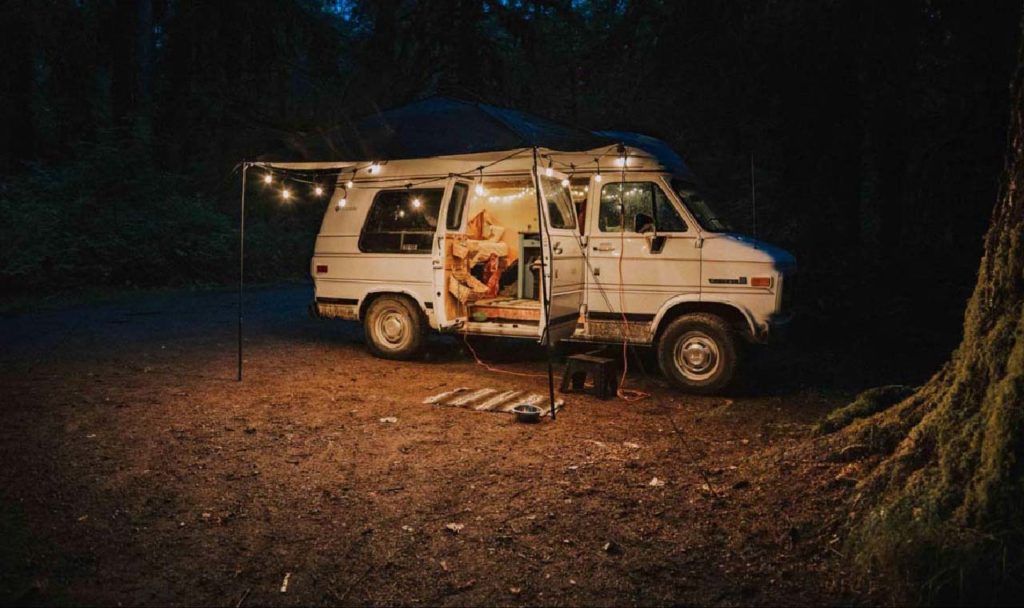
Have you ever found an incredible camping spot, but couldn’t sleep there because the ground was way too uneven? Well I have. Don’t let it happen to you. Leveling blocks are an incredibly inexpensive way of ensuring you get a comfortable night's sleep in even the bumpiest terrain.
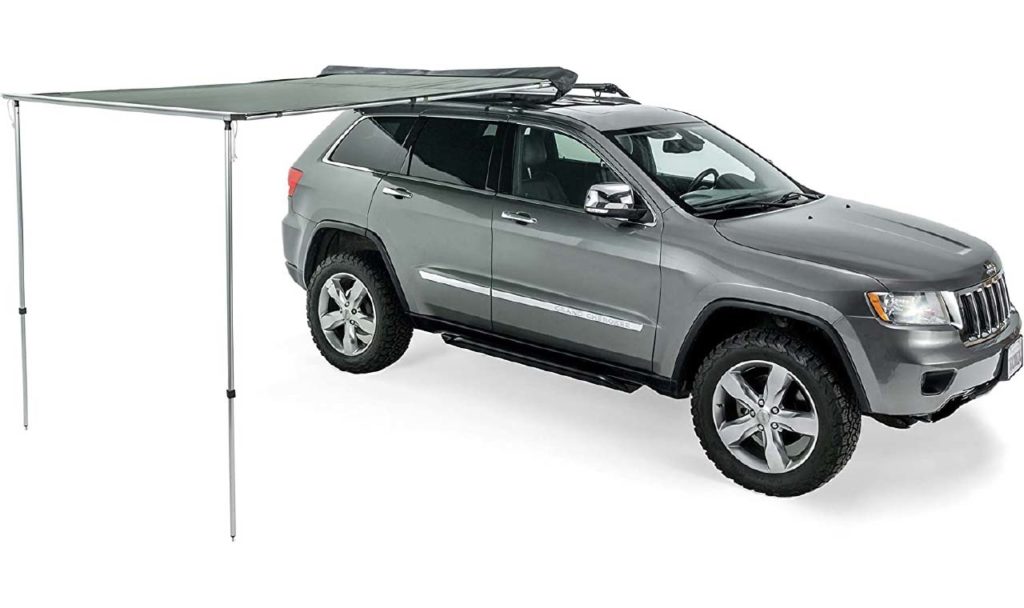
When you are living in a 60-100 square foot home, you quickly realize your living space has to be the outdoors. An awning is the easiest way you can double your living space while traveling. My Moon Shade has kept us dry during downpours and sheltered from the blistering sun on the banks of gorgeous lakes.

Just like stated above— having a great outdoor setup will dramatically improve your quality of life. Find some comfortable outdoor chairs like these so you can relax and enjoy whatever gorgeous region you’re visiting.
Do your part in helping protect the beautiful landscapes you visit and use biodegradable soaps.
The best meals man can eat are cooked over a fire. I’ll take that to my grave. I use my dutch oven right over a campfire, and even right over top of my propane stove. Cast iron is wonderful at retaining heat and ensuring your food cooks evenly.
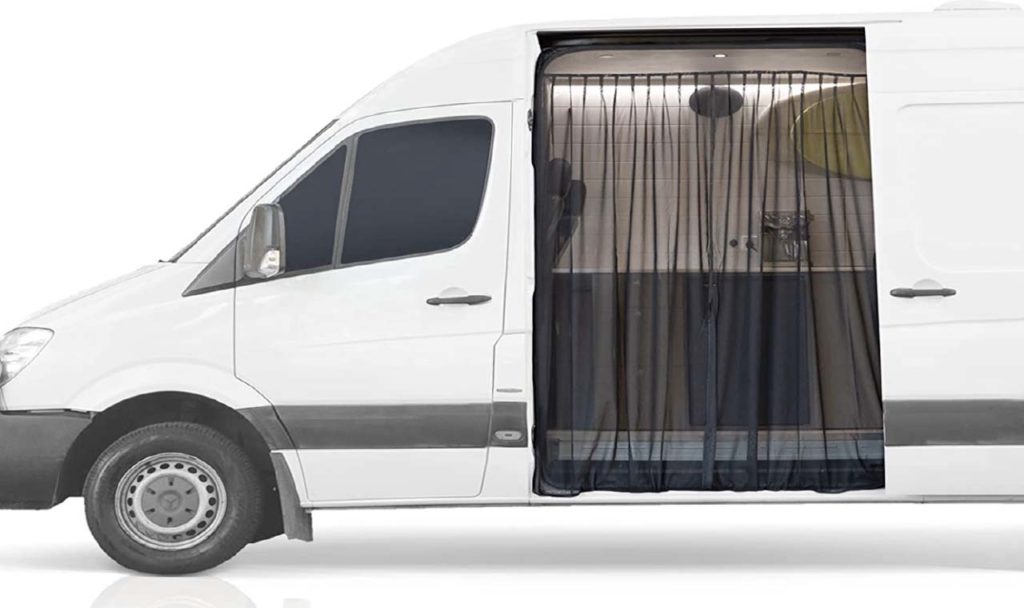
There is no greater feeling than having the doors of your van wide open to whatever incredible landscape is right outside. Save yourself the headache of needing to squish dozens of bugs right before bed and just purchase some bug nets. They are incredibly easy to install and can save you quite the headache.

Being able to make money on the road is imperative. Over and over again forums are filled to the brim with van lifers unable to make enough money to sustain this lifestyle. Look, it is tough to get started. It’s far from impossible though.
Here are some of the best ways to make money on the road and sustain a nomadic lifestyle. There are options for anyone with any set of skills.
Whatever career you are currently in, it may be worthwhile to see if there are any remote options. Keep in mind that needing to be “on the clock” can be difficult while on the road, though not impossible. Plenty of van lifers are able to work traditional 9-5 jobs while living on the road.
If your job offers flexibility in your schedule— even better!
Just be sure to consider whether or not this route will still allow you to get what you want out of vanlife. Also consider how traveling in different states in different time zones will affect your work schedule. If you’re working on east coast time but traveling on the west coast, your 9-5 will become a 6-2.

Freelance work is a wonderful way to ensure you still maintain maximum freedom while pursuing your dream life on the road. I personally was able to shift my entire stationary life and job as a wedding photographer and waitress to a fully freelance life.
Instead of photographing weddings and events, I now do product photography and videography work for outdoor brands. I started building my product photography portfolio before I hit the road so I knew exactly what I was getting myself into.
I also used my expertise in writing for my wedding photography website to start freelance writing for different blogs I knew I could bring value to. If you are a strong writer— being able to set your own schedule and find writing gigs about the things you love is a fantastic way to make more money.
There are plenty of ways to go about finding different writing gigs. My favorite resources for finding them are through ProBlogger, BloggingPro and Matador Network.
If you’re wanting even more freedom than that, many nomads have been able to start their own online businesses. Being able to start bringing in money can take some time, but it is absolutely possible. There are plenty of resources and free courses available like this guide on how to start a blog and start making money!
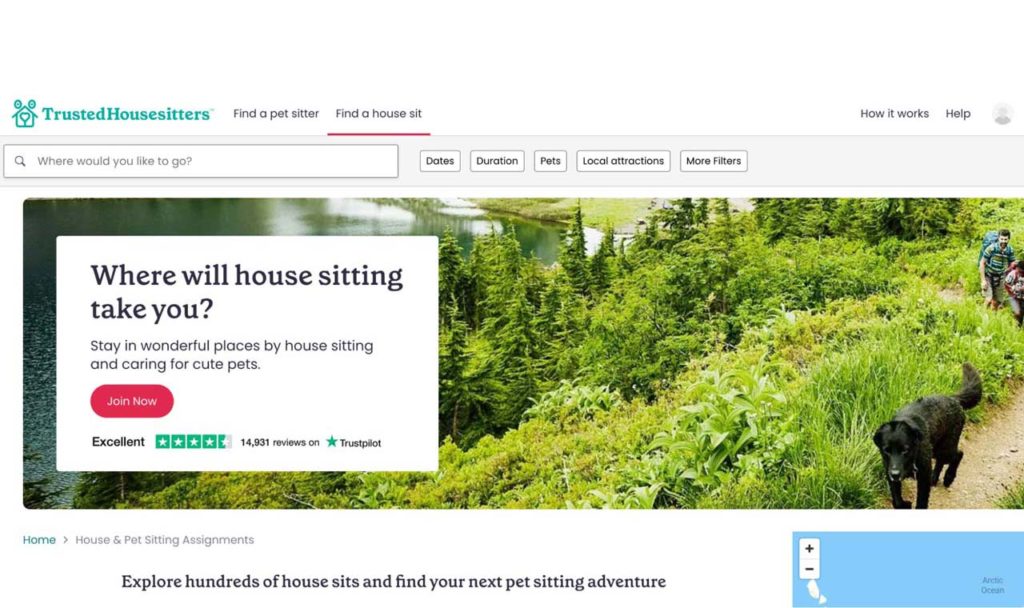
House sitting is a really wonderful way to make money on the road. You’ll be able to indulge in the comforts of house life while also maintaining plenty of freedom. Sites like Trusted Housesitters are perfect for linking you up with gigs.
You will be required to pay an annual fee to use this site, however this fee keeps the competition lower and ensures home owners are only sifting through reliable house sitters.
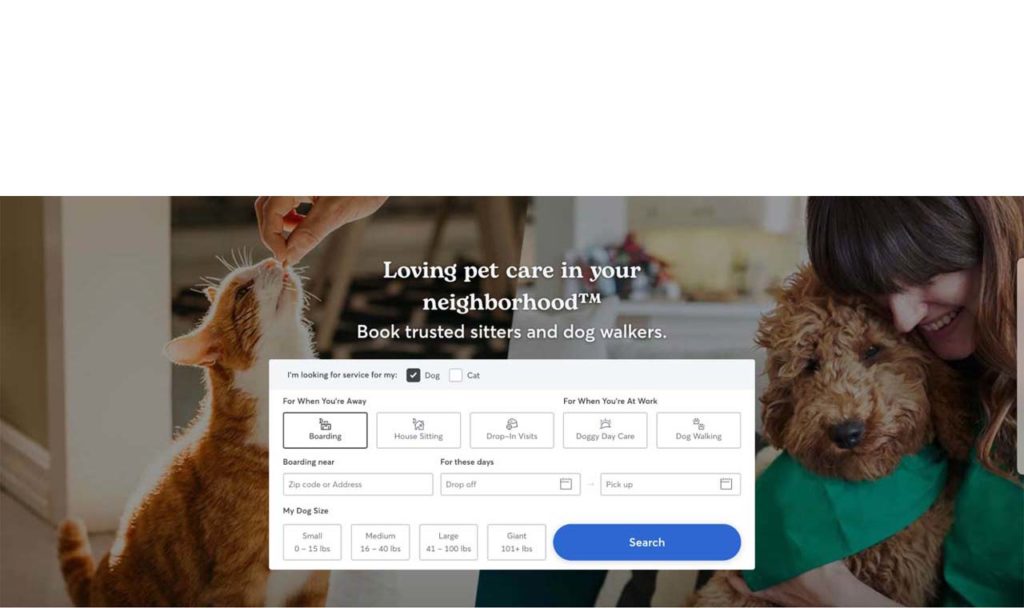
If you’re an animal lover you may consider sites like Rover and Chewy for finding pet sitting and dog walking jobs. Just like housesitting— this option allows you to maintain optimal amounts of freedom. To get started you’ll create a profile and let dog owners know what makes you an ideal candidate to look after their pets.

If you’re someone who loves sustainable agriculture, community and learning— WWOOF may be the coolest way to help sustain your life on the road. WWOOF connects you with local and sustainable farms that will let you spend half the day working, learning and growing, and the rest of your time adventuring.
Depending on your specific agreement, you will most likely be provided meals and camping in exchange for your work. Registration fees are $40 if you are a single person, or $65 if you are joining with a partner.
There are tons of different opportunities all over the USA— so you’ll be sure to find the perfect option for you no matter where you go.
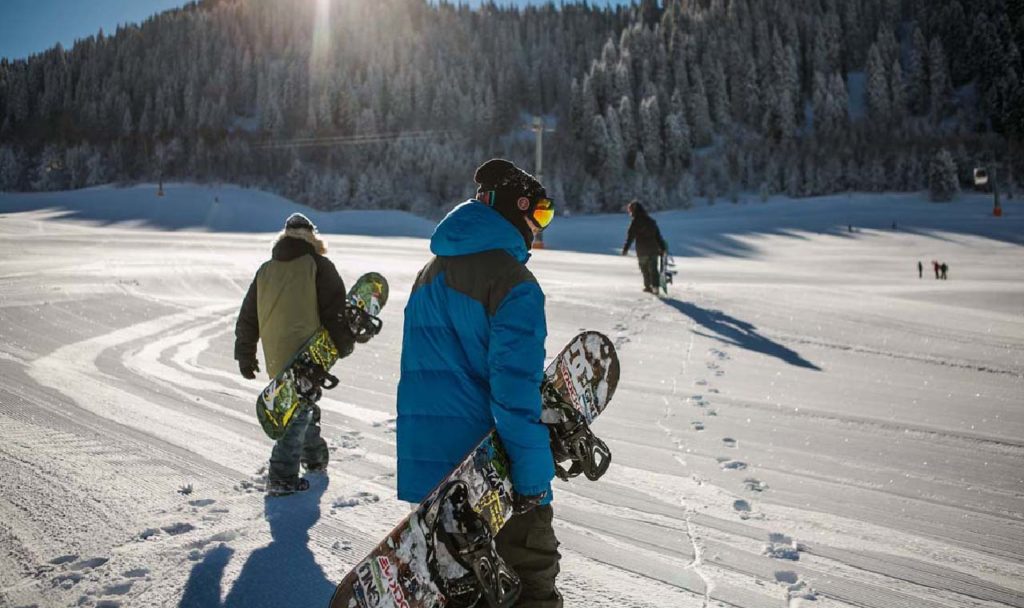
Finding temporary work and seasonal work are incredibly popular ways for van lifers to sustain their adventurous lifestyles. There are so many opportunities that require little to no experience to get started.
National Parks and Ski Resorts are two fantastic places to start looking as they’re always hurting for help and are a great way of making money on the road.
Getting an internet connection on the road is essential for many van dwellers and travelers. Even if you don’t require income for work, you will most likely want the internet to stay in touch with friends and family, find your next adventure and download maps and podcasts.

There are tons of places you can go to get cheap and free internet. Some of my favorite places to work are at public libraries, coffee shops and restaurants.
If you’re on a strict budget or want to stay for several hours, public libraries are a wonderful resource. Otherwise, getting some work done at a coffee shop and restaurant is a really fun way to shake up your environment. Just try to be mindful. Some ways you can be considerate of local business are:
If the establishment you’re working at is full and wrestling a line, you may not want to overstay your welcome. This is especially true if you're at a restaurant. Your waiter probably only has a small section and if you’re perching up for hours at a table set for four and leaving a $3 tip, your waiter will probably not be too happy losing out on their income for the day.
There are a lot of cafes, bookstores and restaurants that aren’t allowed to kick you out past close. This means you could be forcing workers to stay much longer than their scheduled shifts. Always arrive with plenty of time to finish your work so everyone is happy.
I’ve worked in restaurants and coffee shops and truly, it is such a bummer when someone shows up and orders the cheapest thing on the menu, stays for hours and prevents others from enjoying the establishment.
Another very important thing to note is that if you’re planning to use public wifi, you will most definitely want to get a VPN. A VPN is a virtual private network and it basically works by encrypting over a public network to make it private.
This ensures you can safely join public networks without anyone being able to tap into your personal information. Getting a VPN is extremely affordable as well.
ExpressVPN is a great option, and costs less than $100 per year.
Another popular way van lifers get internet on the road is through mobile hotspots, a standalone LTE modem, or satellite internet.

Hotspot data is my go to method of getting simple tasks done on my computer from my van. WIth my unlimited plan, I do only get 5 gigs of hotspot data. So while it's great for doing small tasks, it's not ideal for meetings or research.
If you’re hoping to do quite a bit of work from your van a mobile hotspot alone probably won't take you very far. This would be great for doing light work in a pinch.
Another great way of extending your hotspot data is by signing up for an alternative phone plan that provides you with an extra SIM card. This means that you won't have to potentially throttle the data on your primary phone plan.
Some of the best places to get an extra SIM card are through:
Visible offers unlimited phone plans starting at $25 per month. The best part about using Visible is that their service covers a very impressive span. This means you will be able to use your extra phone plan hopefully everywhere you go. They are always running deals, so be sure to check their website.
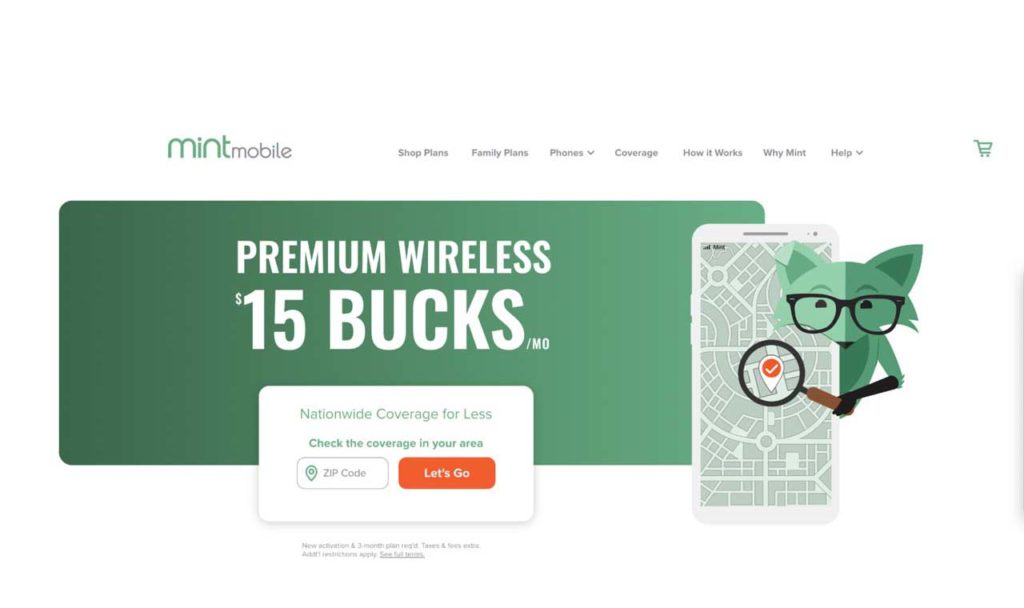
Mint Mobile was actually founded by Ryan Reynolds, and phone plans start as low as $15 per month. Mint mobile is incredibly easy to set up and offers decent coverage in the USA. I will admit that although Mint is available in Mexico— I brought my Mint phone plan down to Mexico and couldn’t even get a second of service the entire time I was there.
A standalone LTE modem is a great solution for those who need a larger data demand than their cell phone hotspot can provide. There are tons of different plans on the market and your modem will work just like the ones you’re used to at home.
The downside is that you still will not get internet from anywhere. Be sure to check your coverage map before scheduling a meeting and heading off into the mountains.

Satellite internet from Starlink has been such a welcomed addition to our van life journeys. This works by communication between our dish and the satellites orbiting in space. Starlink offers unlimited, unthrottled, high speed data.
The catch is that it is a bit pricey initially, and the dish is highly sensitive to obstructions such as buildings and trees. Satellite internet can provide you with much more freedom to work wherever.
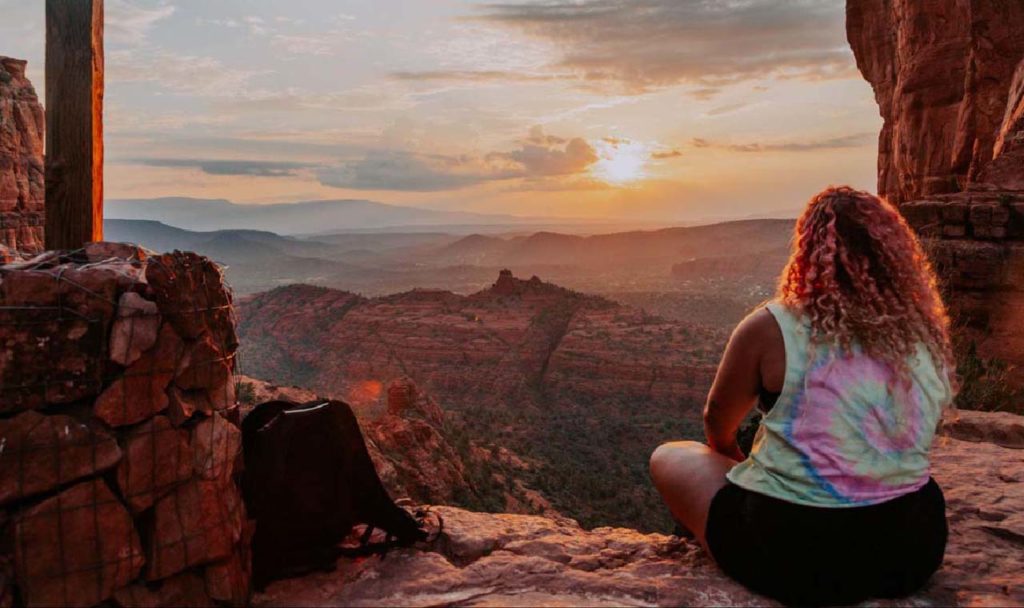
When you’re working on the road, you’ll find yourself constantly being in new locations with plenty to see and do. It can be tough to find a work life balance, particularly if you’re new to making your own schedule.
To maximize your adventure time with working time, I like to plan my fun time first. I plan out my outdoor activities for times where the weather will be the most ideal and there won’t be as much traffic.
The most difficult part of transitioning to van life can be finding grounding and routine. After all, your environment is constantly changing and days of the week can quickly stop holding meaning.
Depending on how you are generating income, your schedule may look different. If you are required to be on the clock at certain days and times, your schedule will obviously look a lot more structured.
If you find yourself with more leniency in your work, it is important to carve out time that makes the most sense to you for work.
Instead of making myself work a certain number of hours, I set goals based on performance and project milestones. I’ll set goals such as:
These goals are all based on completing tasks instead of putting in hours. Breaking the mindset of just earning an hourly wage is tough. If you’re focusing more on productivity and project completion, planning becomes much easier.
It is also important to learn how to say no. If a project no longer serves you, let it go. If you find that your current obligations don’t offer you the time you’d like to explore, find work that does. As you continue to grow and learn, expect that your opportunities will grow and adapt alongside you.
These are the best apps to download for your travels. They do not include apps for finding safe overnight parking— we will talk about that later. These are all useful for finding wifi, saving money on gas and even entertainment.
Gasbuddy is a perfect place to ensure you are getting the best deal available on gas. Gasbuddy will search your location to find you the best deals in your area. Plus, Gasbuddy has a free card you can sign up for to receive exclusive deals all over the country. You can save as much as $0.25 per gallon when you use this card.
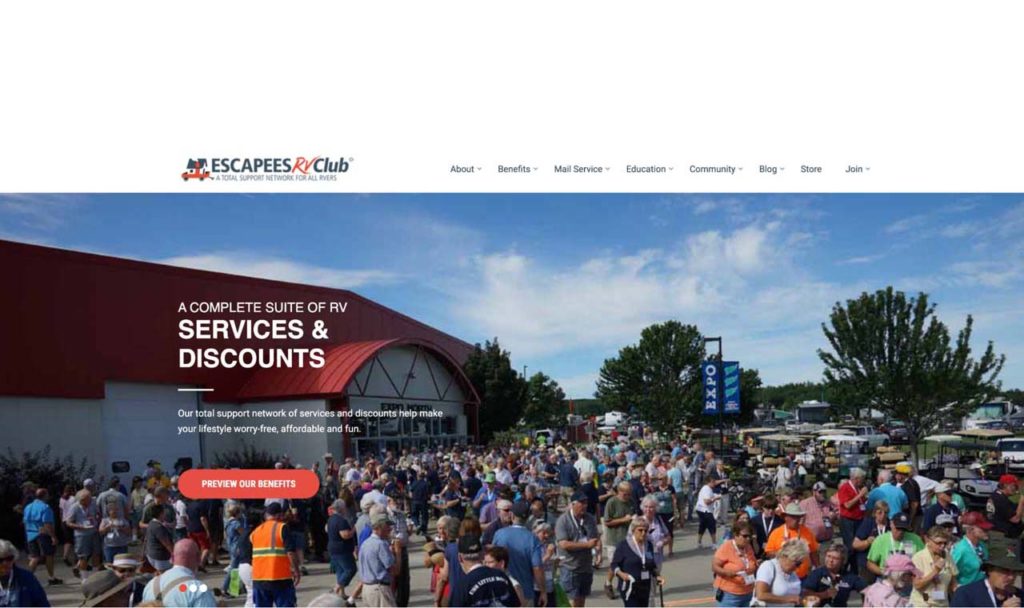
Escapees RV Club is truly a one stop shop for many vanlifers. Through your yearly membership you are able to find exclusive deals on campsites, set up mail forwarding, use the discount fuel program, and even attend events to find your community.
This service truly has your back no matter what curveballs your travels may throw at you.
Finding service on the road can be a challenge. Opensignal lets you plan your travels to ensure you find the coverage you need anywhere you go. Having cell service can provide little things like entertainment, but it can also be lifesaving in the event of an emergency.
Wifi finder is similar to opensignal, except they will help you find wifi signals wherever you are traveling. With this app you are able to download offline maps of the places you are traveling to ensure you always know where you can get wifi.
If you’re a hiking enthusiast, All Trails is a must have. Through this app you are able to explore thousands of different hikes and sift through them based on length, difficulty, whether they are dog friendly, etc.
Through the All Trails Pro membership you can download offline maps and even save lists of completed hikes or even hikes you want to do.
While traveling to different libraries all over the country, I was always envious of all of the locals who could sign up for their library cards and check out books. Little did I know that I could. I wish I had heard of Libby sooner.
Libby is free and lets you check out audiobooks, ebooks, magazines and more.
To sign up you will need a valid library card and library card number. Most libraries will let non-residents sign up for an annual fee. Otherwise check the website of the library where you have residency to see if you can sign up online and receive a digital library card.
Getting ready to move into your van is incredibly exciting! This is your time to get all of your ducks in a row and get excited!
If you are keeping a room, house, or even a storage unit then downsizing may not even be necessary. However, if you are planning on going into van life and having everything you own with you in the van, this will require diligent downsizing and finding multiple uses for many different items.
When I moved into my van I had to downsize an entire house to fit in my van. I’ll admit that I do have my snowboarding gear and a small box of keepsakes in my Grandma's basement. But other than that I had to rehome tons of furniture, clothing, and kitchen supplies.
Honestly, I did not give myself nearly enough time to do this. Here are all of my tips for downsizing your things and being excited about it:
If you aren’t utilizing consignment stores in your day to day life— it is absolutely time to jump on the bandwagon. Consignment stores for furniture and clothing are an incredible way to refresh your things while also being eco-conscious.
Fast fashion is horrible for the environment and often very unethically made. If you prefer to shop at retail stores for brand new clothing— that is perfectly okay. You should buy the things you want to buy. However, always be sure you’re giving them a chance at a new life when you are finished with them.
When it comes to downsizing, consider finding a consignment store for your old clothing and furniture. Consignment stores will either buy your old items outright or pay you a percentage off whatever sale they made off of them.
When I was downsizing my closet, I ended up earning $650 off of my old clothes. That is a great way of earning a few hundred dollars.
Facebook marketplace is a fantastic resource for rehoming your things. Try to sell as much as you can, but if you find yourself with items you can’t sell— try to give them away to someone who needs them.
When moving into my van I was able to give my old winter coats to someone who needed them, my extra dog crate to a woman who couldn't afford one, and a giant box of non-perishable food that I didn’t have space for.
Visit buy/sell/trade pages first, but also join groups where people post their needs. Chances are, you have some things that others need.
Contact friends and family and ask them if they need anything you have. I love artwork. I had a giant collection of beautiful paintings and prints that I was not ready to get rid of. My little sister always told me how much she loved my art pieces, so I asked her if she wanted to hang them in her apartment indefinitely.
I am so happy to know that they are being enjoyed. This can be a much easier way of handling sentimental items.
Look, I have several items in the “garage” portion of my van that I just don’t use. Believe me, if you haven’t used it in the last 6 months, you most likely will not miss it while you’re in your van.
Be really mindful of why you are keeping certain items. Picture yourself using the item on your van life journey.
I have a longboard under my bed that I won’t touch. It was a well known fact that my dog hates longboards and tries to bite me in the rear every time I use it around him. So why did I bring my longboard? I don’t even have an answer for you. Learn from my mistakes.
This is perhaps the most difficult part of downsizing your things. You may find yourself with old gifts you feel bad getting rid of, or items that carry a sentimental weight. Believe me, if they are collecting dust in your home, they will collect dust in your van.
That doesn’t necessarily mean you have to part with them forever though. For instance, both my Mom and my Dad passed. I have things of both of theirs that I couldn’t bring myself to get rid of. They definitely didn’t have a place in my van though.
I contacted my siblings to see who wanted to take their “shift” at enjoying these things. My older brother was so choked up getting to read through our Dad's old planner that had the day he was born written in it, his old budgets, and other important dates. My sister was excited to take the box of photos I had from our mom’s house.
Think of how you can honor certain items that carry a weight. Bring old photos in to get digitized. Contact people who may want to hold on to sentimental items.
Lastly, one of the best pieces of advice I ever received for managing sentimental gifts was— you don’t owe someone any more than a genuine “thank you.” You don’t owe them by holding onto an item that doesn’t serve you for years.
Would you want someone to begrudgingly hold onto something you gave them? You would never want them to feel bad getting rid of something you gave them. Hopefully you never want bad feelings attached to your gifts.
Lastly, if you find yourself with items you don’t quite know where to put or what to do with— a great option is to rent a storage unit. Storage units can be incredibly inexpensive and a very safe way to store your personal items. They are perfect for those who aren't sure if the minimalist lifestyle is quite for them.
Vanlife can potentially cost much less than traditional living in a house. It is definitely not free though. If you’re wondering exactly how much van life adventures cost— here are a few ideas of what to budget for.
Did you know that most traditional insurance companies will not insure your campervan if you’re living in it full time? Even AAA will refuse coverage and roadside assistance to campervans if they know you are doing full time van life.
Luckily there are insurance companies like Roamly that will ensure you are covered no matter what.
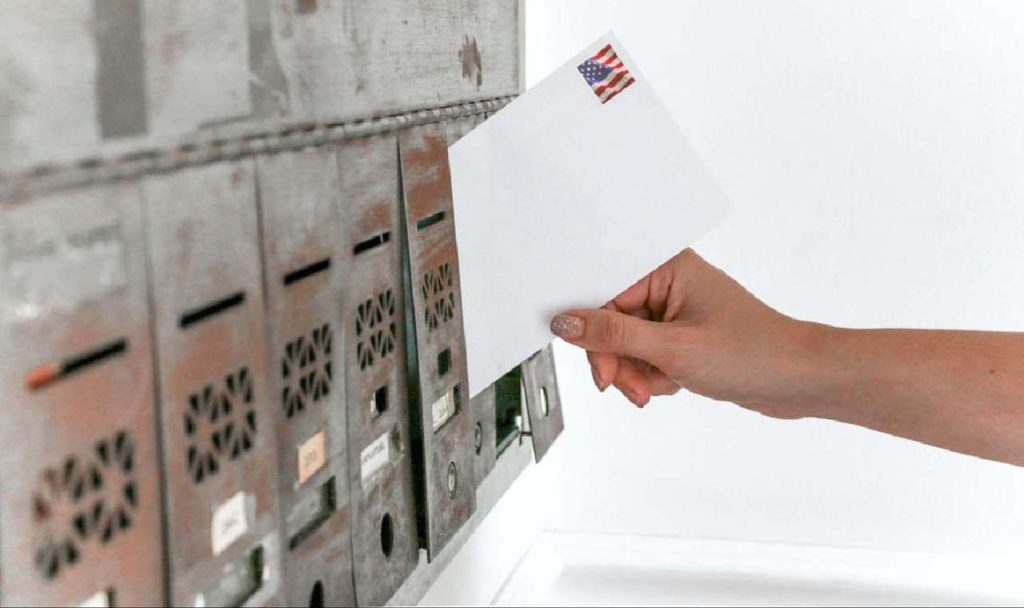
When you are traveling there are many reasons you will still want to have a stationery address. You will need a place for your important documents such as legal forms, bills, and proof of residency forms. A domicile can help you maintain or even establish residency somewhere.
This is also quite simple to do. You’ll want your mail to be forwarded to a facility where you will give legal permission for them to open, scan or even forward documents to you wherever you are.
You can do this through Anytime Mailbox, Earth Class Mail, or even through your Escapees RV Club Membership.
This process does require setting up an appointment with an online notary. From there they will confirm your identity and ask for explicit permission to handle your mail. The process is fairly simple and quick.
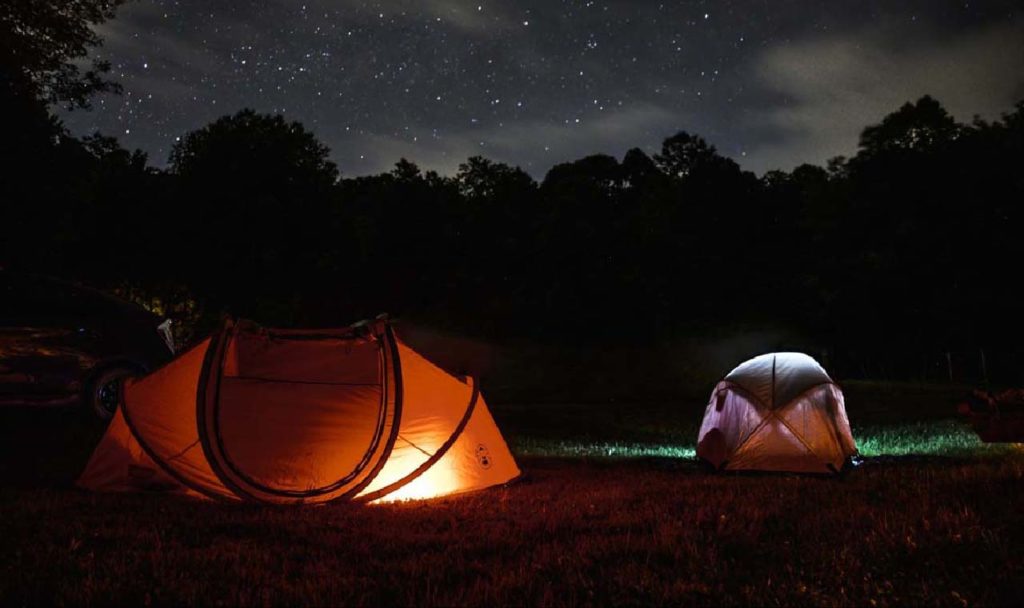
Although it is totally possible to never have to pay for a campsite— sometimes it can be a welcomed escape. Certain campsites will offer wifi, showers, laundry, and information about the area you are in.
It may be worthwhile to set aside some money for the occasional rv park or campsite.
A national parks pass or America the Beautiful pass allows you access into every single national park in the country. For just $80 per year you can gain access to over 2,000 recreation sites all over the USA.

Most travelers will never have to experience theft or the need to defend themselves. Regardless, for your peace of mind and security it is always worth it to take the extra precautions necessary to keep both yourself and your things safe.
Here we lay out everything you need to know about staying safe on the road.
When traveling it can be difficult to identify which areas are considered safe parts of town and which are deemed unsafe. It is always worth it to research any area you wish to visit before you go.
However, as the cost of living continues to rise, many more people will find themselves in desperate positions and safe neighborhoods can quickly become unsafe.
Being able to defend yourself in the event of a robbery or even bear attack is always a good idea.
Some of the best personal protection to bring with you are:
A gun is the ultimate form of protection. Just be sure when traveling that you are following gun and open carry laws. Also, if you are planning to head abroad to Mexico or Canada, you’ll definitely want to leave your gun behind.
Bears have incredible senses of smell. Just because you are in a van does not mean you are safe from a bear encounter. If you are traveling anywhere near bear country be sure you are following all bear safety precautions and carrying bear spray.
Getting a taser such as the VIPERTEK Taser is a wonderful way to bring you peace of mind while you’re in your van. If you ever hear funny noises at night, this taser has a super bright flashlight to help you see what is going on.
Keeping a vile of pepper spray on you is a great way of defending yourself while in a new city. Most are very small and will fit in your pocket. Be sure you practice using it so you know exactly how far it is capable of spraying and exactly how it's used. Hopefully you’ll never have to use it, but it's always worth it to keep on hand.
If you’re ever in a location or situation that makes you feel uneasy. Trust your intuition and move. Never stay somewhere that makes you feel uneasy. Always keep your keys somewhere you can easily find them, and be sure you can quickly climb into your driver's seat without needing to leave the van.
Another very important note when it comes to personal protection is that you should never share what methods you are using. You may feel like telling the world you own a gun will keep you safer, but in reality, it could just mean intruders come more prepared than they otherwise would have.
Look, as travelers it’s so easy to say theft will not happen to you. As I am writing this blog post I am intermittently assisting my friend who got robbed while their rig was parked right next to my van while we were asleep.
We took all of the necessary precautions— we googled the neighborhood we were sleeping in, and even my dog (who regularly wakes me up in the middle of the night, is slightly crazy and has no issues biting intruders) was asleep in the front seat. My friend travels in their roof top tent, so I let them sleep in the van with me while we were in the city.
At 5:30am one of the neighbors who lived in the neighborhood knocked on the van to let us know they just witnessed and scared off two males driving a white sedan with no license plates. They managed to smash two windows and steal over $10,000 worth of gear.
Needless to say, this is not something that will happen to everyone, but it obviously can. Even though we took tons of precautions, we are learning that there is more that we should have done to prepare.
Here is exactly what you need to know about how you can protect yourself from the unthinkable:
If you are continuing to rent a home or apartment while you travel, having really great renters insurance can bring you tons of peace of mind. If your van gets broken into, they will often reimburse you for the things you lost.
When you are living in a van, it is your whole life. Everything you own is inside. It is always worthwhile to carefully read through your insurance policy to know exactly what is covered. Check for things like roadside assistance, theft, if they will help with a rental car or hotel in the event of a breakdown or accident, etc.

There are so many purchases you will make when you are gearing up to move into your van. Keep receipts of everything. This will help you with insurance claims if ever your things get damaged or stolen.
Go through all of your electronics and write down your serial numbers. When we had our break in, we were so glad we did. After talking to the police department they informed us that they find tons of stolen property every single day, but aren’t able to return them to their owners because they don’t know who it all belongs to.
If ever your things get stolen or damaged, you will want to have all of your serial numbers on hand. Store them digitally.
Having a safe in your van is imperative. You’ll want to store important things such as insurance cards, passports, vaccination records, and other important documents.
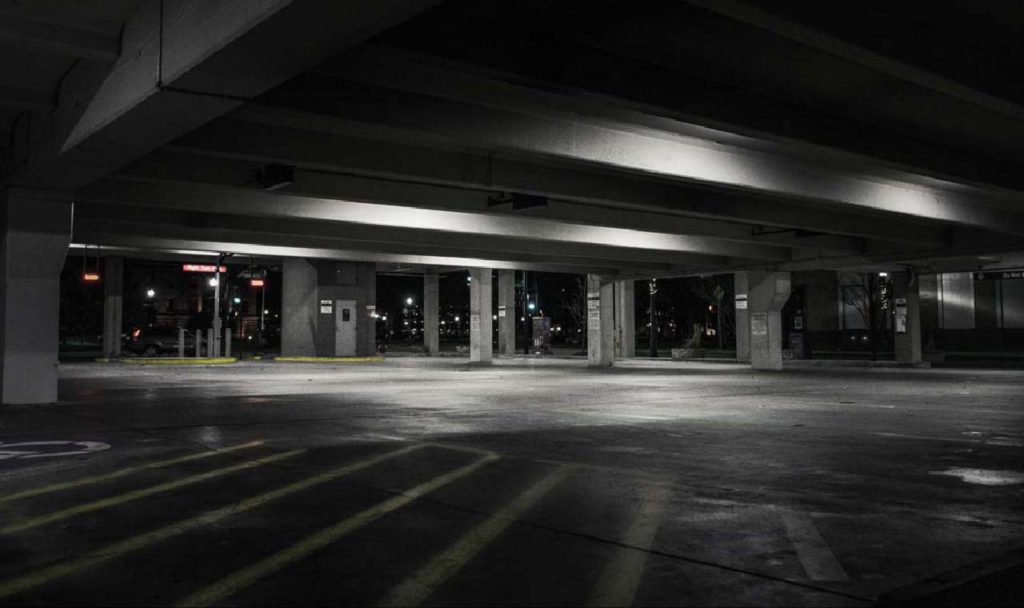
With the van life movement growing exponentially, there is no shortage of apps and services you can use to find incredible camping all over the country.
Depending on what region you are traveling in you may be able to find free dispersed camping, along with sometimes very inexpensive campgrounds.
Some of the best apps to use to find safe overnight camping are:
iOverlander is a pretty straight forward app to use. You can search the location you are staying in to find free camping, paid campgrounds, water fill ups, dump stations, laundromats, and tons of other helpful stops in your travels.
iOverlander allows users to submit reviews and photos of campsites, so you’ll be able to see information such as if there is cell signal, a bathroom nearby, and road conditions.
Freeroam operates fairly similarly to iOverlander in that it shows helpful locations and campsites. One thing that sets Freeroam apart from their competition is the ability to select map overlays. These overlays can show you exactly where BLM land is, your cell phone providers signal coverage and even regions with fire restrictions.
The Dyrt has both free and paid subscriptions. With this app you are able to download maps for offline use, book campgrounds at discounted prices and search for the perfect camp. If you’re not sure about upgrading to the PRO membership— The Dyrt does offer a free 7 day trial.
Boondockers Welcome connects campers with locals in the area. Hosts can list their properties for campers to stay at. As a camper you can often find sites located on wineries, farms, and other unique locations. The subscription costs just $79 per year and can be much more fun than an RV park or campground.
Similar to Boondockers Welcome— Harvest Hosts connects campers with unique local stays in places like breweries, wineries, farms and other attractions. This membership costs just $99 a year.
Camping in nature and camping in a city are two completely different beasts. Finding safe and legal spots can sometimes be tough. Here is the low-down on how to camp in both environments.

When looking for places to camp in nature, look out for BLM land and national forest land. These spots are free public lands that are meant to be used for recreation, education and preservation.
While camping in nature, always be aware of what wildlife you may encounter. Remember that bears can smell food even inside your van, so always be sure to store food appropriately. Always cook away from your camp, and promptly clean up after yourself.
Camping in a city can become a little bit more tedious than camping in nature. Always check local laws to be sure that sleeping overnight in your vehicle is legal. Regardless, if you choose to sleep in a city or even suburb, always talk to locals to figure out which neighborhoods are safe.
Anytime you head to an outdoor location, always ensure you are leaving it in better condition than you found it.
This includes cleaning up trash, leaving nature alone, and picking up after your pets. If you arrive at a location that is covered in trash— always be willing to clean it up.
Unfortunately, there are many locations that have been destroyed by negligence. In order to keep beautiful areas open to the public, we all must do our part to help preserve and maintain them. As places become more and more riddled with van lifers and campers, we run the risk of them being shut down.
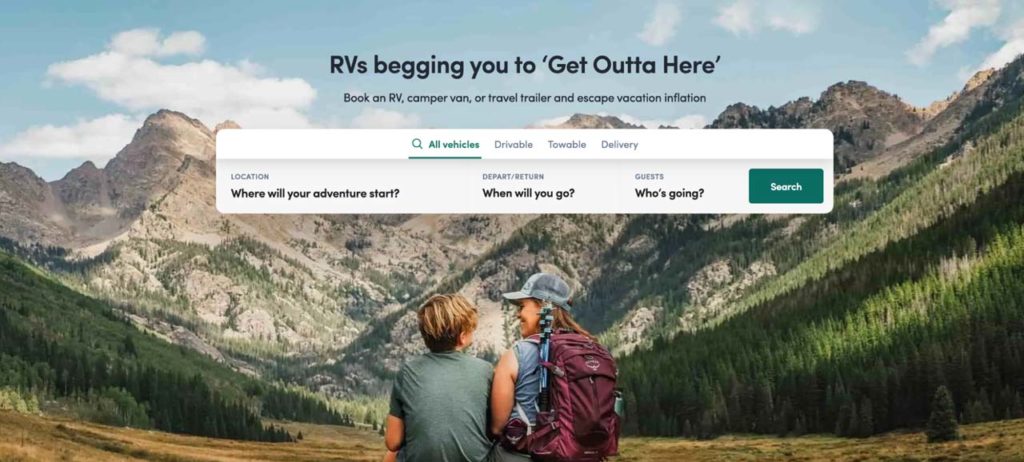
One really great way to dip your toes into van life before you jump in head first is to rent a van!
This is a great way to get a feel for what you would like your space to look like. You’ll get a taste for how you would like your kitchen to be set up, if you’d prefer a stationary or convertible bed, and even if you will need a bathroom or not.
You’ll get a glimpse at what finding a safe overnight camping spot looks like how you do in tight spaces.
There are a number of amazing campervan rental companies so you can try out many different layouts and van sizes. If you’re not sure what direction you want to go with your conversion van— renting can be a great jumping off point.
The best places to rent a camper van are:
Outdoorsy is like Airbnb but for campervan and RV rentals. Booking is easy through the website and you can find endless unique campervans to rent. Also, you’ll never have to worry about finding separate insurance, as Outdoorsy offers top of the line insurance plans with every rental.
RVshare is super simple to use and there are hundreds of different rentals you can choose from. Find unique vehicles such as RVs, pull behind trailers, vans and school buses. Just like Outdoorsy, RVshare ensures you are covered with top of the line insurance plans with every RV rental.
Many van lifers choose to attend meetups. Finding gatherings of other like minded travelers is one of the most fun things about being a location independent traveler.
The best places to find van life gatherings are through websites such as facebook, and Escapees RV Club. There are hundreds of vanlife groups on facebook you can join and talk to other like minded travelers.
Escapees RV Club is unique in that they offer meetups, events and a huge online community. You can do things such as set up your mail forwarding address, find campsites and even get discounts on helpful services.
Another great option for finding a van life community is to go to meetups. There are tons of different vanlife meetings all over the world and they can be a great way to make friends, attend workshops, listen to live music and explore different vendors. These meetups are well worth the road trip!
Some of the most popular van life meetups in the US are:
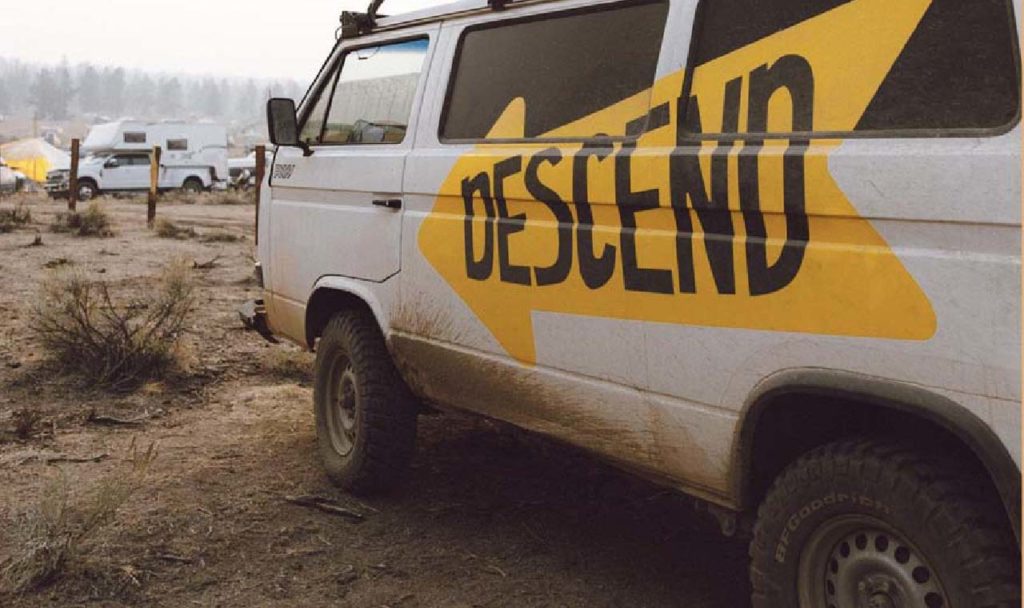
Descend on Bend is an annual meetup for vanlifers, skoolie drivers, truck campers and RVers to get together. This three day festival is full of live music, markets, workshops, and daily yoga classes. The dates vary, but the event will always take place in the late summer. So be sure to check the website for the exact dates.
Burning Van is a New Years celebration that takes place annually in the California desert. Events include a talent show, workshops, meetups and watching the “burning of a van.” Camping is available for this three day festival.
Skoolipalooza is an absolutely massive annual event held in Southern California every January. The event goes on for 10 days full of campfires, meetups and gatherings. The best part is that this event is totally free. You don’t even need to own a Skoolie to come— anyone in any rig is welcome.
Tiny Fest is all about tiny house living. You’ll be able to attend workshops, events and meet tons of other people interested in alternative living. This event takes place every March in San Diego.
Adventure Van Expo hosts events all over the country all year long. This event is for overlanders, van lifers, and those interested in alternative living to come together. Enjoy workshops, beer, food and events. Be sure to check their website for all the information on dates and locations.
Overland Expo Events is held in multiple locations all over the US. It is a place for motorcyclists, campers and van lifers to attend workshops, meet like minded people and even test drive different rigs. Check the website for all future events.
Here are a few ideas of van life friendly places you can add to your itinerary.
Bend, Oregon was described to me as “summer camp for vanlifers,” and it's so easy to see why! This city is stacked with plenty of outdoor activities such as kayaking, rock climbing, biking, and hiking. Plus, there are acres of available dispersed camping sites only a few minutes outside of the city center.
Bend has a young and proferessive demographic, so you’ll never get funny looks getting out of your van.
Moab is an ideal place for van life. The landscape is stunning and provides endless outdoor opportunities, expansive free and dispersed camping, and is right on the doorstep to two incredible national parks. Beat the heat kayaking the Colorado river during the day, hike to Delicate Arch at sunset, and enjoy some of the best stargazing in the country before bed.
I’ve personally visited Moab dozens of times and still find myself with plenty to explore.

Yes, Arizona is painfully hot. However, Flagstaff is actually located at a higher elevation in a random mountain town in the middle of the expansive desert. In the summers you can expect temperatures in the low 80s, and in the winter you can even enjoy an average of 108 inches of snow.
Amidst the beautiful seasons, you'll also find plenty of camping and year round recreational activities.
Located in western North Carolina you’ll find the vibrant city of Asheville. Asheville is nestled in the Blue Ridge Mountains and is a hub for lovers of art, adventure and culture. With an expansive landscape Asheville offers plenty of boondocking and stunning paid campsites.
Jackson Hole, Wyoming is a stunning mountain town right outside of Grand Teton national park. The city is vibrant and full of craft breweries, local restaurants and specialty shops. In the winters you can enjoy world class skiing at Jackson Hole Mountain resort, and in the summers you can explore the Tetons and venture into the breathtaking backcountry. It’s no wonder Jackson Hole is a haven for van lifers and nomads.
Austin, Texas is known for its vibrant culture and rich history. Austin is also the live music capital of the world. Between the vibrant and bustling city and the expansive and rural Texas Hill region— Austin provides plenty of great outdoor activities, camping and boondocking.
Gunnison National Forest in the Colorado Rocky mountains provides over 1.7 million acres of public lands. If you are a “peak bagger,” you’ll be thrilled to know that there are two mountain tops over 14,000 feet in elevation and 20 over 13,000 feet. Gunnison is ideal for vanlife because there is plenty of free public land begging to be explored.
It seems that anyone who has been to Glacier National Park will agree— it is one of the most stunning natural landscapes in the world. It is home to plenty of alpine lakes, granite peaks, and over 700 hiking trails.
If you love the beach, convenient camping, and recreational activities such as surfing, mountain biking and hiking— Jacksonville, Florida should absolutely be on your list of places to visit. The city is vibrant and the surrounding wilderness offers boondocking and camping for anyone.
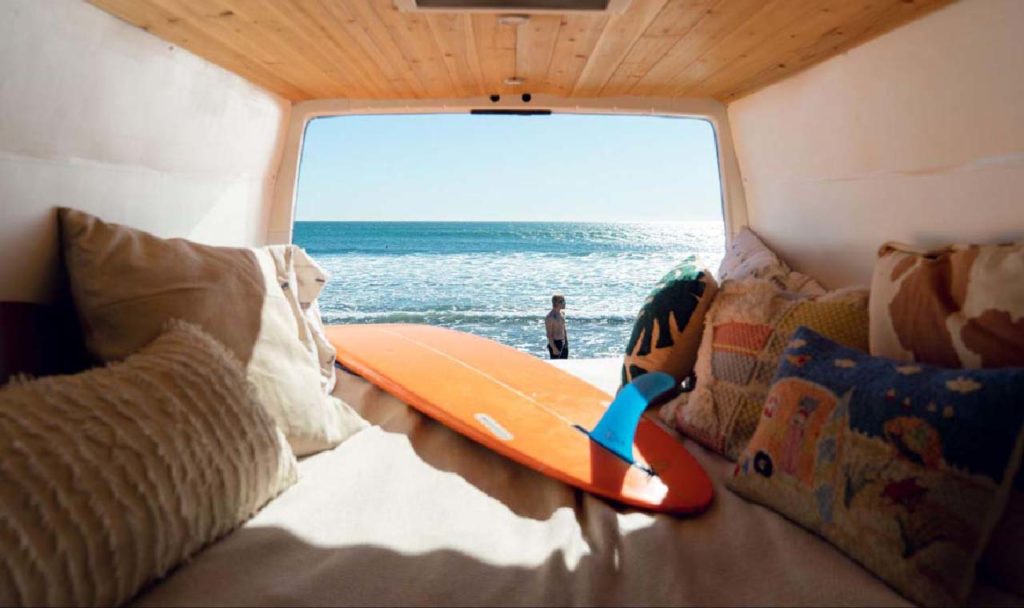
Although this list is supposed to consist of the best places in the USA for vanlife, I couldn’t help but add Baja, Mexico to this list. Although Baja does require some more tedious planning than some of the other places on this list, it is full of amazing camping, food, and stunning beaches. Baja is the perfect place to spend the winters if you’re hoping to escape the cold.
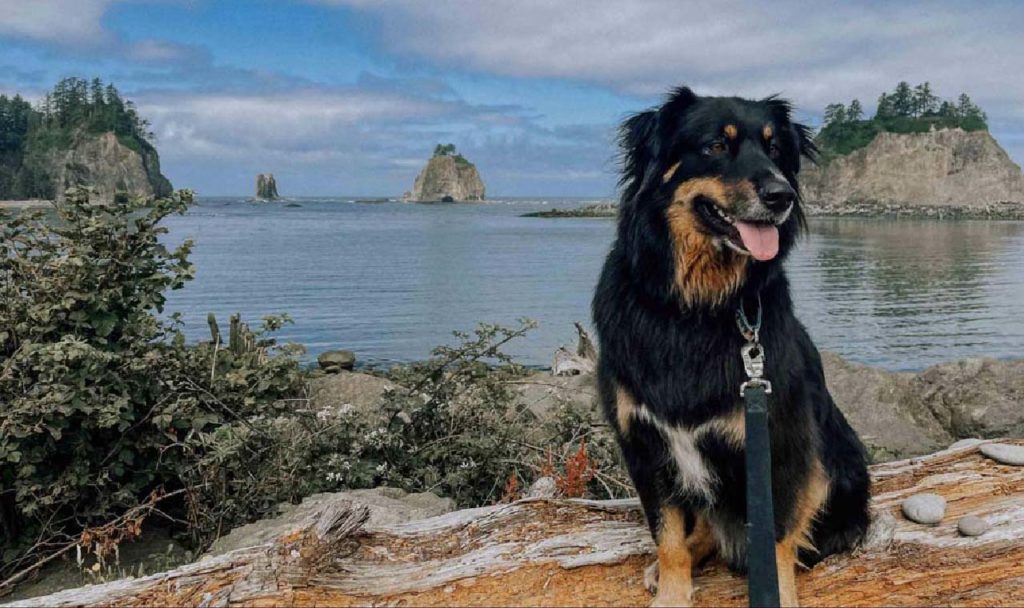
Deciding to travel with a pet can be so rewarding. You will always have a companion and they can even provide extra safety and security.
Van living with a pet does require some sacrifices though. I travel with my big Australian shepard, Malamute, and German Shepard mix. My whole life revolves around him and his needs. We don’t really travel to National Parks because they aren’t very dog friendly. I also have to travel where the weather is cool because he simply can’t handle heat.
I wouldn’t trade it for the world though.
Here are all my tips and tricks for traveling with your pet:
When you decide to travel with your dog full time, you will be made very aware of the holes in their training. My dog completed three levels of training and he knows so many cool tricks like how to shut doors, jump though my arms, bow, etc. He still has a terrible recall though.
In the months leading up to moving into your van, spend extra time working on essential commands such as leave it, stay, sit, lay down, wait, and come. Having your dog properly trained could absolutely save their life on the road.
Also, be incredibly mindful of your dog's shortcomings. I know my dog has a terrible recall. We work on it constantly. This means that he is almost never allowed off leash. Because of his high “wolfiness” percentage and his incredibly high prey drive, he will chase just about anything that moves fast such as bikes, squirrels, cats, and joggers.
If your dog has certain behaviors that will make vanlife a bit harder, that's okay! Start working on these things as much as possible, and contact a dog trainer if necessary. When you do get on the road, always help your dog have the greatest chance of success and prioritize their needs.
It is always advised that you stay on top of your pets vaccination records. If for any reason you need to put your dog in a boarding facility or find a sitter off Rover or Chewy, you will need these records on hand and up to date.
Ticks and fleas are sometimes unavoidable, but you can protect your pet with medications, certain shampoos and special collars.
Growing up in Utah— I have never dealt with ticks before. The very first month we were in Washington state though, I had to remove 4 ticks from my dog.
Ticks can carry diseases, so it's best to protect yourself and your pet when you are out in nature.
If you have a hypoallergenic pup that doesn’t shed, congrats. That fur free bed of yours must be nice. If you have a fluffy pooch that sheds, you’re going to want to invest in a high quality brush. The furminator brush is absolutely fantastic at removing a shedding undercoat, and will ensure your van stays as fur free as possible.
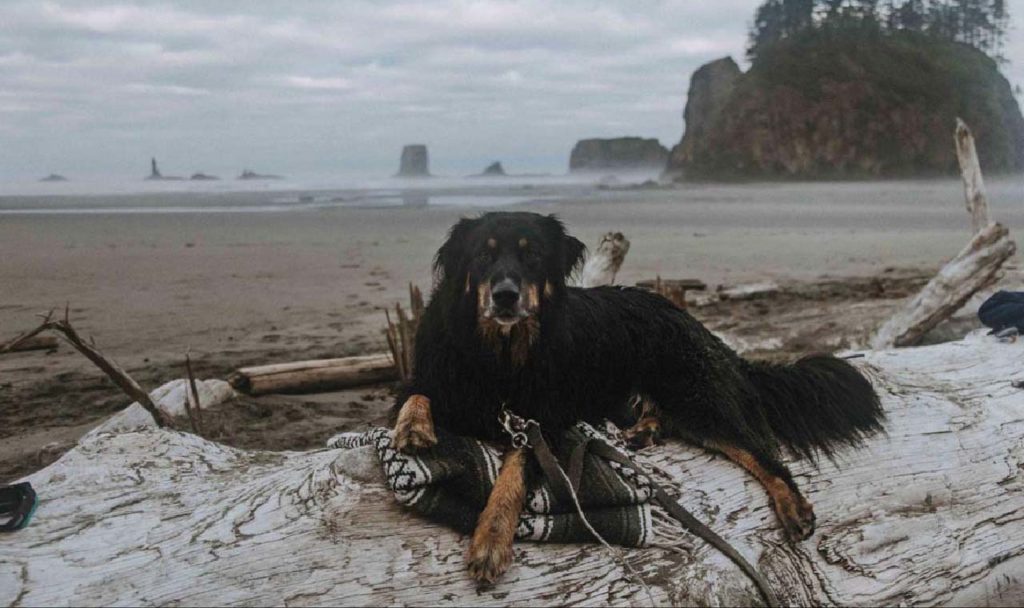
The fact of the matter is that not every single place you will want to visit will allow your pet. For instance— National Parks often do not let dogs on their trails because of preservation concerns. The Wasatch Mountains in Utah are protected as a watershed and therefore do not allow dogs either.
There are still plenty of places you and your dog can go though. Do your research on where you want to go ahead of time to make sure there is plenty for you and your dog to do. There are tons of incredibly friendly towns out there if you’re willing to do a little digging.
Also, be mindful of the climate of the region you are visiting. My dog is a cold weather dog. He thrives in the snow. This is why I opted to spend my summer on the coast and in the Pacific Northwest.
When I started on my van life journey, I brought along my dog's big comfy bed. I would tuck it in the foot area of my passenger seat and bring it out at night for him to lay on. This got incredibly annoying very fast.
I couldn't even step out of my bed because the gigantic dog bed was in the way. Not to mention having to crawl over my big dog who inevitably sneaks into my bed at night anyway. I replaced my dog's bed with a camping and travel specific blanket.
This blanket is so easy to shake off, move and store. My dog also agrees that it is still so comfortable.
Believe it or not, dogs love routine. Not only that, it can be pretty easy to forget a potty break, to fill their water, or even feed them a meal on a crazy day.
No matter where we find ourselves, we go through multiple routines a day. Anytime we arrive at a new location, the first thing I do is give my dog water, a thorough potty break and some attention.
Always go through your dog's list of needs and give them the benefit of the doubt. There have been so many times my dog will start acting up on even a short drive, or barking at me seemingly out of the blue. Your dog is always trying to communicate with you. Don’t forget to listen.
As a general rule of thumb, you should add 20 degrees to the outside temperature to get the temperature of what your vehicle will be like. So if it's a relaxed 80 degrees outside, plan on the temperature reaching 100 in your van.
Now, with that being said there are things you can do to help monitor and regulate the temperature inside your van.
First, be sure you have a vent fan (or two) installed. My vent fan dramatically reduces the inside temperature of the van and I always leave it on when I have to leave my dog inside.
Also, pick up a thermometer you can regularly check while your dog is in the van. I love this Govee WiFi Thermometer because I can monitor the inside temperature of the van from wherever. This gives me peace of mind knowing my best friend is always comfortable and happy.

Before leaving home, make sure to get your pup a thorough health screening. Travel can be very stressful for your pet, and it's important that they stay happy and healthy.
Better yet, get your dog an Embark DNA and health screening test! This is such a great way to learn all about your pets health, their exact breeds, their wolfiness rating, and even connect with your dog's relatives! This photo is of my very wild dog Rooney’s results.
Here we answer some of the most common vanlife questions and provide tons of useful information for all of your other vanlife questions.
Repairs can be incredibly expensive, and fairly often, mechanics can only attempt to fix a problem. Learning to troubleshoot your vehicle can save you thousands of dollars.
Just last month I broke down in my van. After trying a few things and being unsuccessful at repairing the problem myself, I took it to a mechanic. The mechanic immediately told me I needed to fix my intake manifold gasket. The part was only $20, but the labor was going to cost me over $1000.
I decided against spending the money to fix the gasket and went back to the books to try to repair my van myself. Turns out there was nothing wrong with my intake manifold gasket and the repair was actually very simple. I learned that the parts store gave me the wrong knock sensor, and that is why my van was running so poorly. I replaced the knock sensor with the correct part and I was back on the road and my van was running like a dream.
Imagine I would have spent all of that money on a repair that wasn’t even necessary. Do yourself a favor and learn the basics. You are more than capable of making repairs and helping diagnose your vehicle.
If you’ve ever lived in a van or traveled full time before, you’ll know that finding a routine can be a challenge. Every single day is completely different than the previous day, and you’ll learn that being flexible is key.
I find it helpful to plan my day based on the weather, activities and other obligations. If I am in a city with tons of outdoor activities, I will often choose to play in the morning and work in the afternoon and evening.
The best part about van life and living as a nomad is being able to have flexibility in your schedule. Set yourself productivity goals, and stick with them as much as possible. Don’t forget to invest in time off as well. I often find myself accidentally working 7 days a week, and forgetting to take days off.
At the beginning of my van life journey, I quickly figured out that my van was getting a whopping 6.5 miles per gallon. I have since been able to double my gas mileage with a little bit of elbow grease.
The top ways to get better gas mileage and save money are:
When was the last time your spark plugs were changed? How about your fuel filter? If it's been awhile, you may want to consider changing these things out. These will directly affect how efficiently your vehicle is using gas, and when they get old they could start communicating poorly with your vehicle's computer system.
Gas is not cheap, and keeping your vehicle properly maintained will ensure your engine stays healthy and your gas mileage remains optimal.
Your fuel injectors are responsible for delivering fuel to your engine. Over time they can become dirty and stop delivering fuel effectively. An additive such as a fuel injector cleaner or gas such as Chevron with Techron can help keep your injectors clean and working optimally.
The more weight you include in your van build, the harder your engine will have to work. While building out your van, aim to keep your weight down as much as possible.
Did you know that your gas mileage is the best when you’re driving at 55mph? Keeping your speed a little slower on the freeways can help you save money in the long run.
I am a sucker for heading off the beaten path to find the best campsites. This does come at a price however. Some sources state that driving on dirt roads can affect your gas mileage by upto 15 percent.
One of the joys of vanlife is that a tiny space is quick to clean. However, a limited space becomes cluttered much faster. In order to maintain harmony in your space, always be sure that everything has a home, and everything promptly returns back to its designated space when it's not being used.
This is particularly true if you’re traveling with a partner.
Vanlife is wonderful for keeping you on your toes. Being able to remain flexible in your planning and calm in the face of uncertainty will be mandatory.
You never expect to break down, your campsite to be closed down, or the only water refill station in town to be broken.
Find the positive in every single situation. If my van hadn’t broken down my gas mileage would have remained atrocious, I wouldn’t have met some of the incredible people I crossed paths with and I wouldn’t have been able to learn so much about my van's engine.
There is one thing that is certain with van life and it's that you will be constantly faced with challenges out of your control. Focus on what you can control like your attitude and outlook and you’ll see every situation as a blessing.
Van life is hard. Needing to constantly be on the lookout for where you’re staying and having to go the extra mile to find water, bathrooms, laundromats, showers, etc. is exhausting. When you find yourself feeling down, tired or moody— be gentle on yourself.
Van life can be taxing. It is normal to get tired and irritated. Instead of beating yourself up, use this as an excuse to pamper yourself. Go get a massage, sleep in, set up your hammock or jump in a lake.
Remember why you got into van life in the first place, and take advantage of all the incredible places you get to visit.
Even with seemingly unlimited data plans, your service provider can still throttle your high-speed data after a certain amount of usage.
Get into the habit of downloading your music, podcasts, movies and youtube videos ahead of time to prevent being throttled. You’ll quickly regret scrolling through Tik Tok later in the month when your important maps won't load.
Trust me on this one. When you are planning things such as your kitchen setup, fridge space, storage, etc. You will want this to be as easy as possible.
After about four months with my kitchen setup I am beyond tired of needing to roll my fridge out from under the counter to grab things. I am also incredibly over needing to hook up my propane tank to my stove every time I want to cook.
These things don’t feel like a big deal at first because they are such simple tasks. However, when you need to do this multiple times a day for months, it becomes very annoying. Take the extra time when planning your setup to make your everyday tasks as easy as possible. Future you will be so grateful.
Sometimes you’ll find yourself in towns where van lifers are welcomed, loved, and accepted. This is always so refreshing. Other times you’ll find yourself on the receiving end of bad looks and condescending whispers.
One time I overheard a woman say she didn’t want to be close to me because she didn’t want me to get her sick. I smiled and waved at her as I got out of my van, and this totally affected how she saw me.
This had nothing to do with me. She had no idea that I had spent the previous week deep in the Hoh Rainforest—alone. I was even freshly showered, which is definitely not always the case with vanlife!
People will see you differently when you are living in a van, regardless. Most people will tell you that you’re living the dream, but there will be people who see you in a negative light. You’ll have to just learn to shake off the negative opinions and move along with your day.
Also, it's worth noting that we have to be mindful of how we are presenting vanlife to different communities. Every single one of us will leave an impact on whatever community we visit. Be mindful of laws, be kind, and bring value to every community you visit.
Imagine fighting a fever during the summer in your van, or fighting food poisoning with no civilization around for miles. Staying healthy is incredibly important whilst living in a van because it will be much more difficult to simply be sick.
Take the extra time to nourish your body properly and stay fit. If you choose to eat out, make smarter decisions to keep your immune system strong.
There is absolutely nothing wrong with enjoying a beer or glass of wine after a long day. However, when you are van living you need to be mindful of your alcohol consumption and storage.
In most states your van is considered a vehicle— not a home. This means that open container laws and drinking in your vehicle could mean big trouble.
A DUI could very easily result in thousands of dollars in fines and you could even get your license revoked. This would be a tragic end to an epic adventure.
State laws do vary on an individual basis, so if you do decide to indulge, be sure you are aware of laws and abiding by them.
My rule of thumb is that if there is any inkling that I could get stopped or bugged at while parked at night— I don’t drink at all. Even if I am positive I will not be bothered, I still take extra precautions such as storing my alcohol well, and disposing of empty bottles or cans immediately.
If you’re used to indulging most nights in a drink or two, it may be a great time to consider shifting your habits and being more intentional about when and how often you partake. Van life is about expecting the unexpected, and being inebriated in a vehicle is the last place I want the unexpected to happen.
Living in a van is not a time to leave yourself waiting around for your next paycheck. Vanlife is full of obstacles, curve balls, and unexpected surprises. If you’re living in an apartment in the city and your vehicle has to go to the shop for a few days, you can grab rides to work from friends or take public transportation.
If your van has to go to the shop for a few days you could find yourself without a place to sleep at night. Having an emergency fund is absolutely critical. I can not stress this enough. How much you can afford to put away in the event of an emergency is totally personal, but plan on having enough for a few nights in a motel and maybe a rental car.
Van life should be fun, and there is nothing fun about being broke with nowhere to go and vehicle problems. Expect that you will be broken down at some point— it happens to the best of us. Being able to save money will provide so much peace of mind.
Defining what makes a van stealthy can be a bit of a difficult task. Stealth camping generally means your vehicle looks like no one is living in it.
There are some perks of having a stealthy rig such as being able to camp in cities that don’t allow it (although this can be illegal and have serious repercussions) and it can be potentially safer— there are also plenty of reasons a stealthy van is not worth your time.
Like stated previously, some van lifers opt for a stealth camping vehicle so they can sleep in cities and fly under the radar. However, things such as an out of state license plate and the map you accidentally left on your dashboard can easily give you away.
To have a stealthy van means you also have to give up some really important luxuries. Solar panels, vent fans and windows are immediate giveaways that a van is actually a camper van. I would personally never want to trade any of these things to simply illegally camp in cities.
Another reason you may want to reconsider having a stealthy van is that finding camping (especially out west) is ridiculously easy.
Again, whether or not you decide to make your van stealthy is a personal decision no one can make for you.
I believe this is comprehensive as anyone has been in detailing everything about getting started with being a van lifer. I hope my experience and personal stories and advice give you the guidance you need to get started. And if you are ready, then it's time to start building your van!